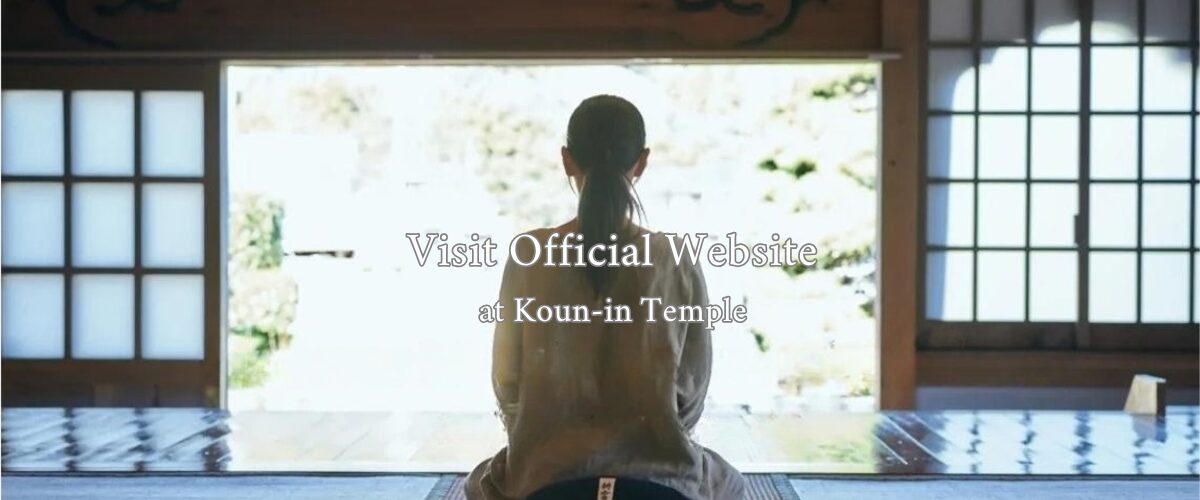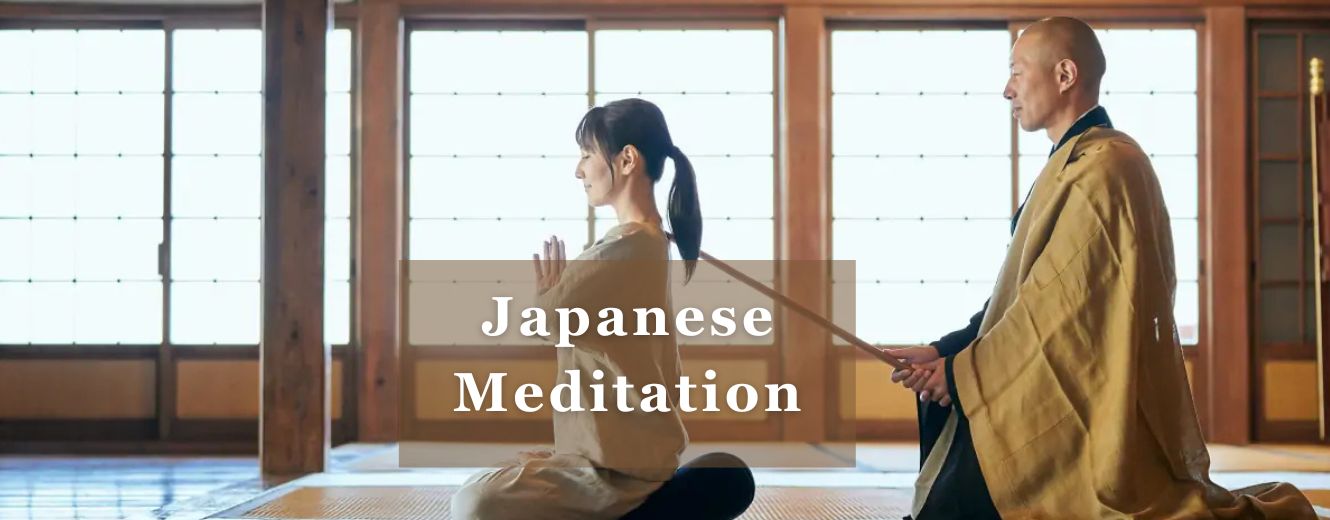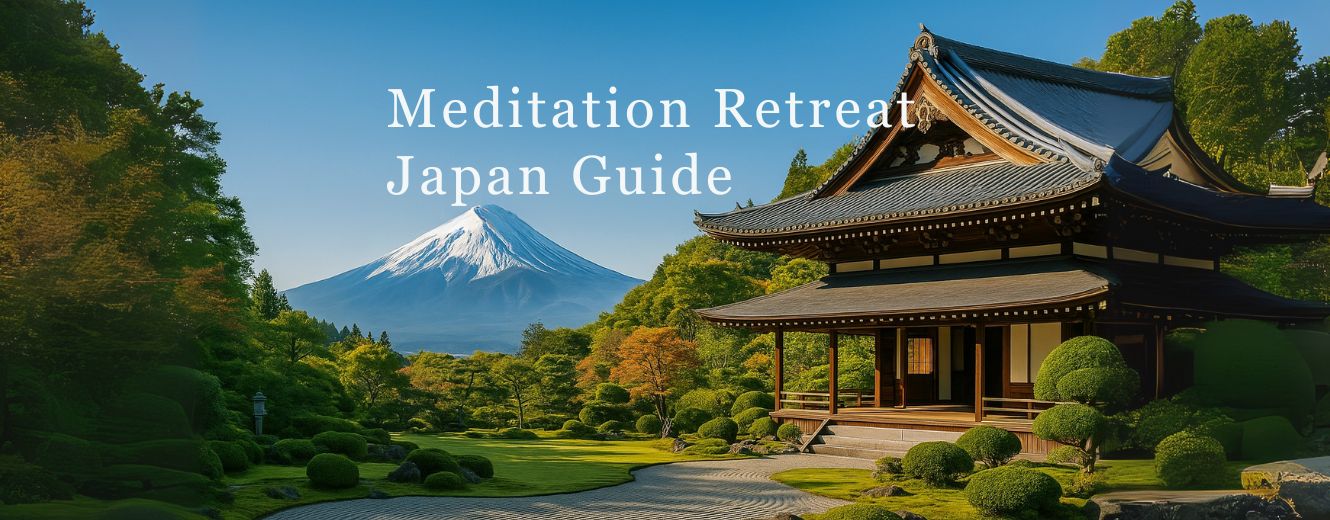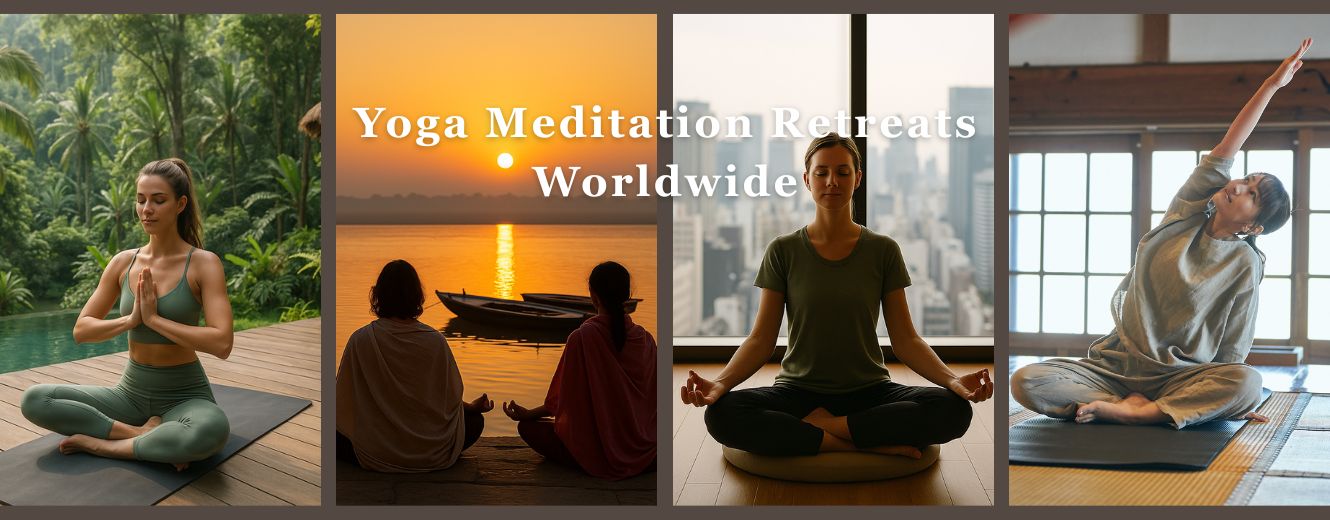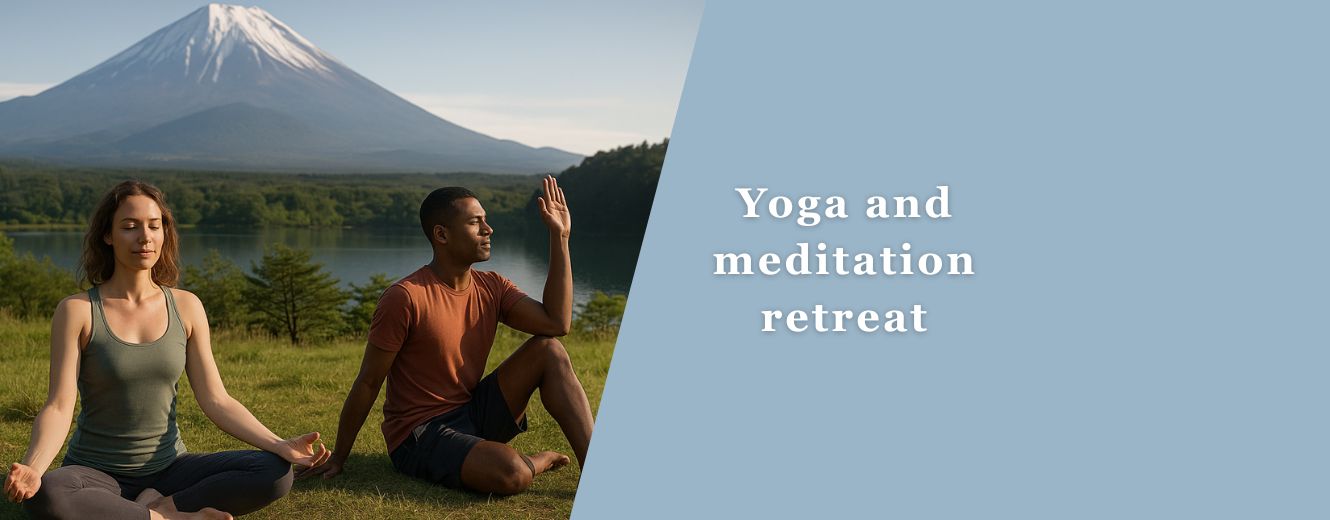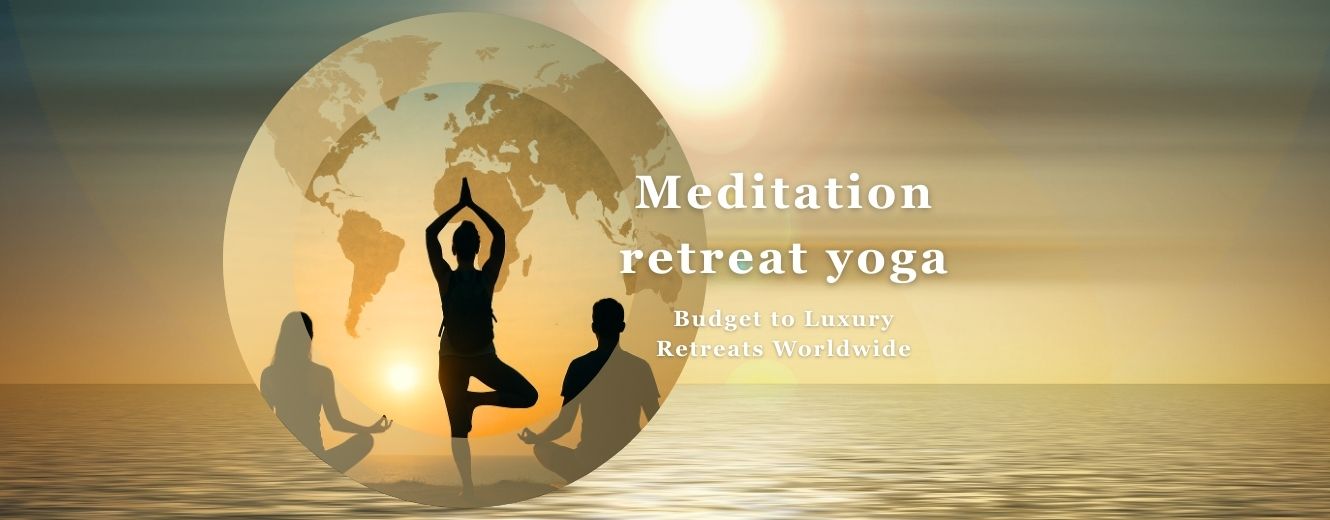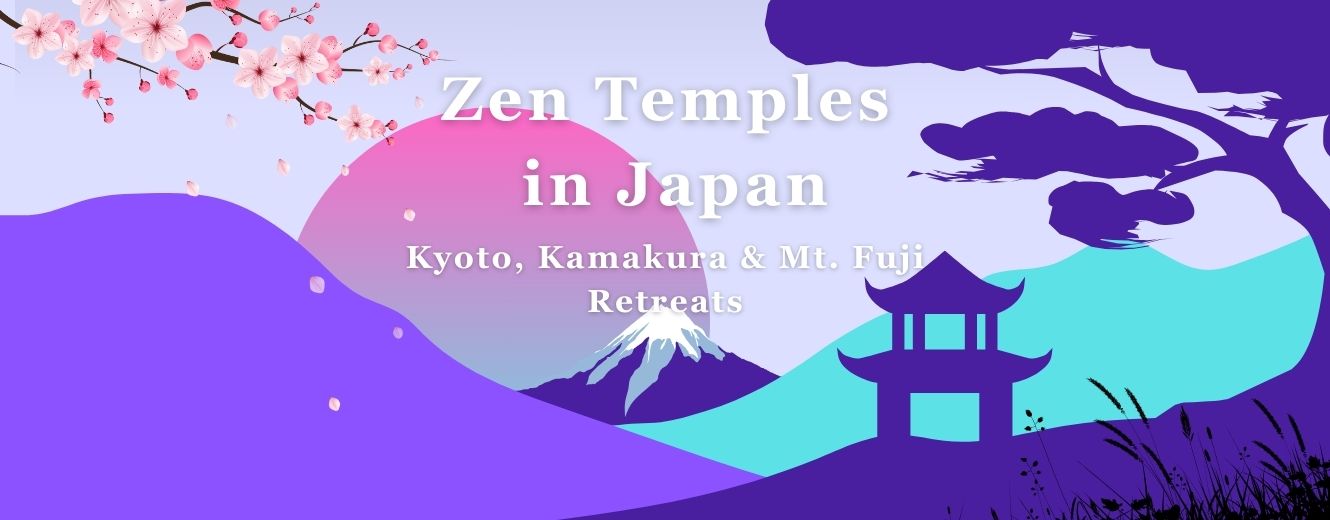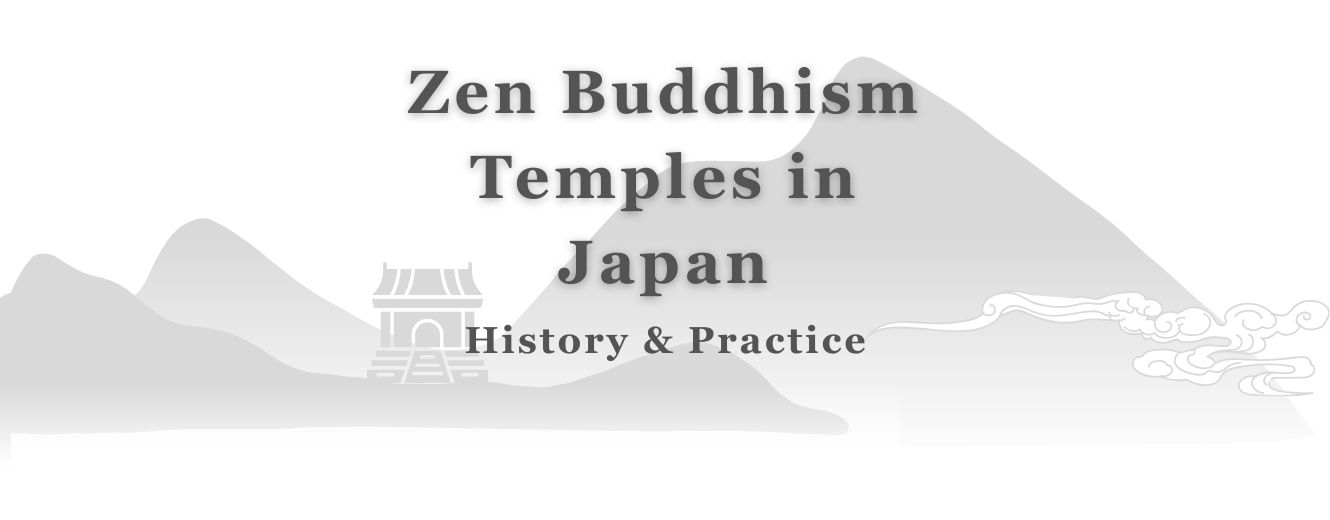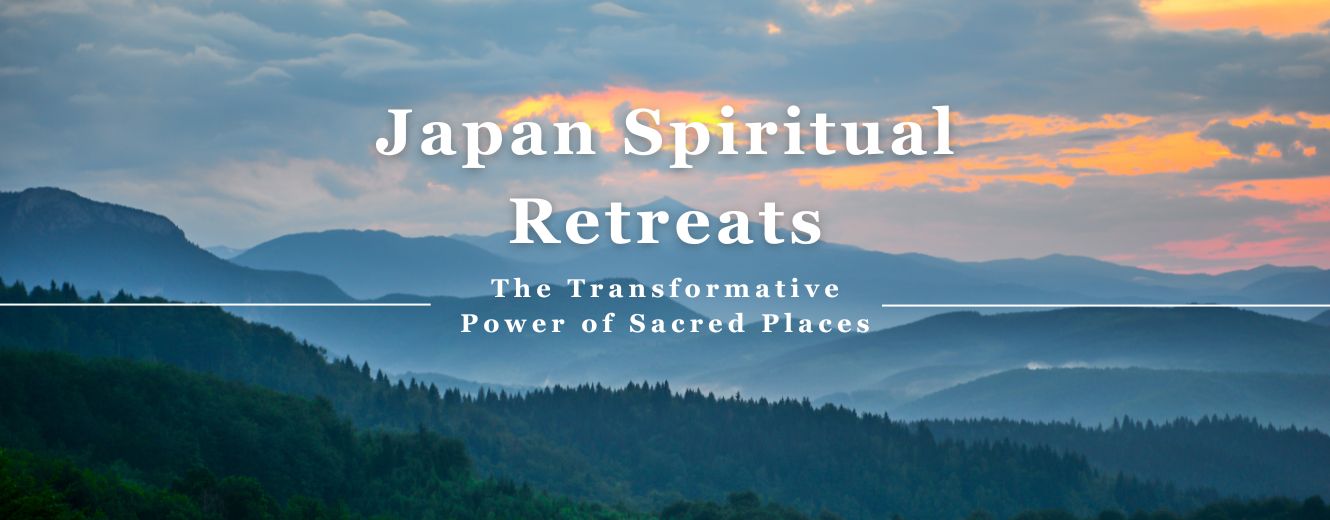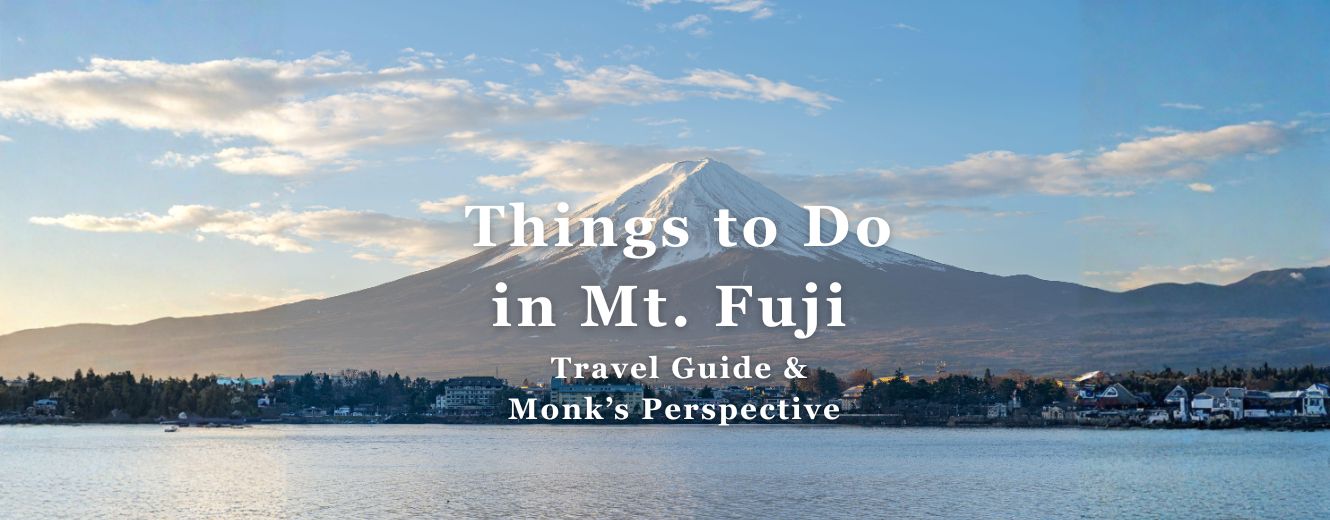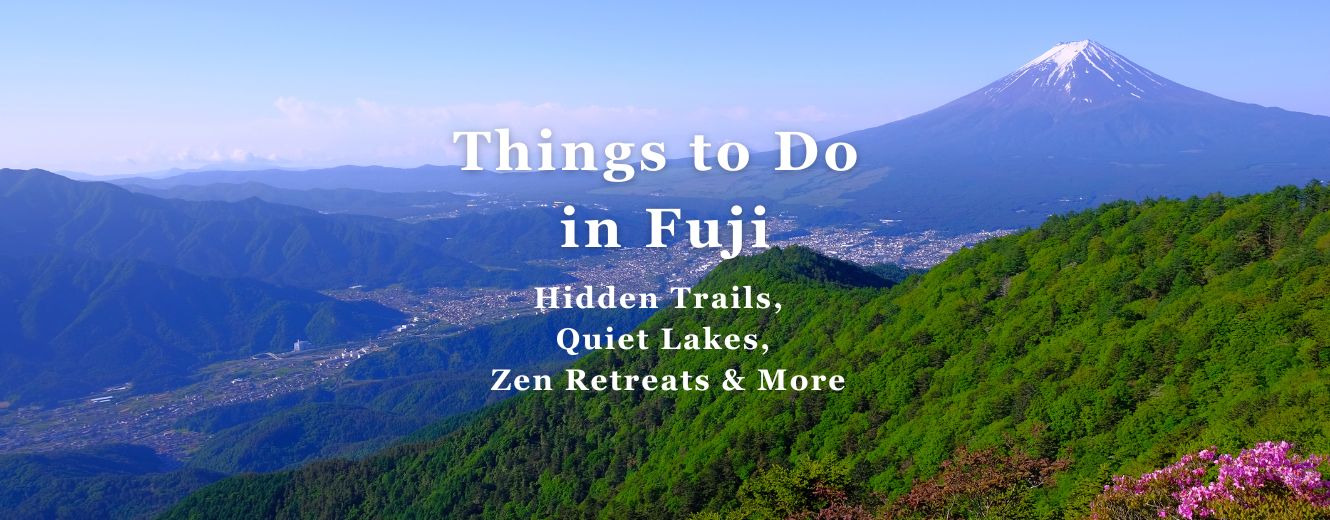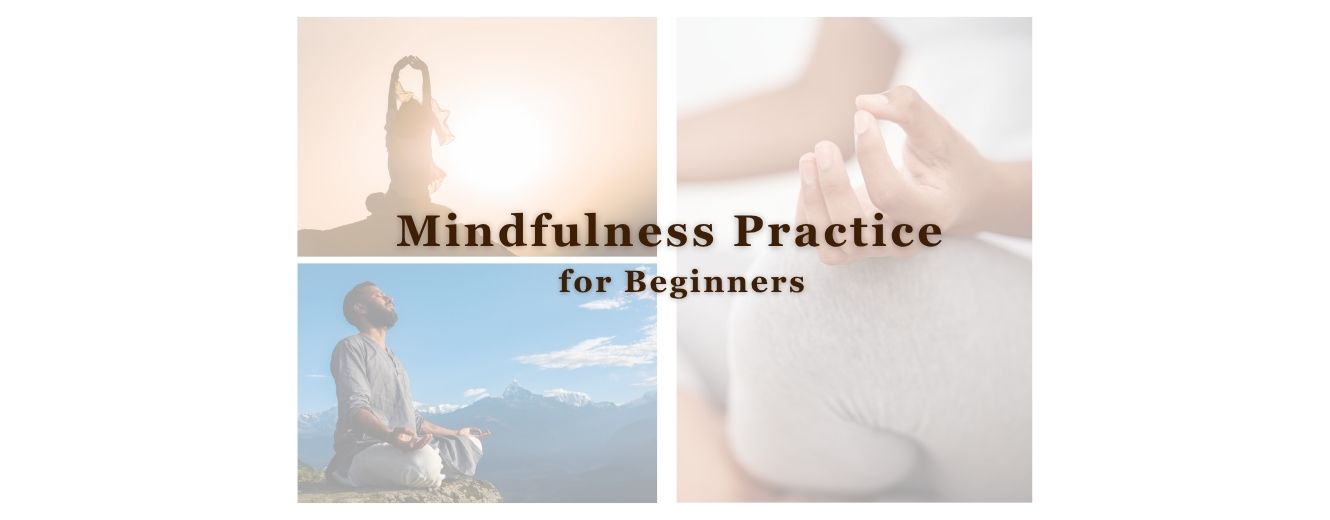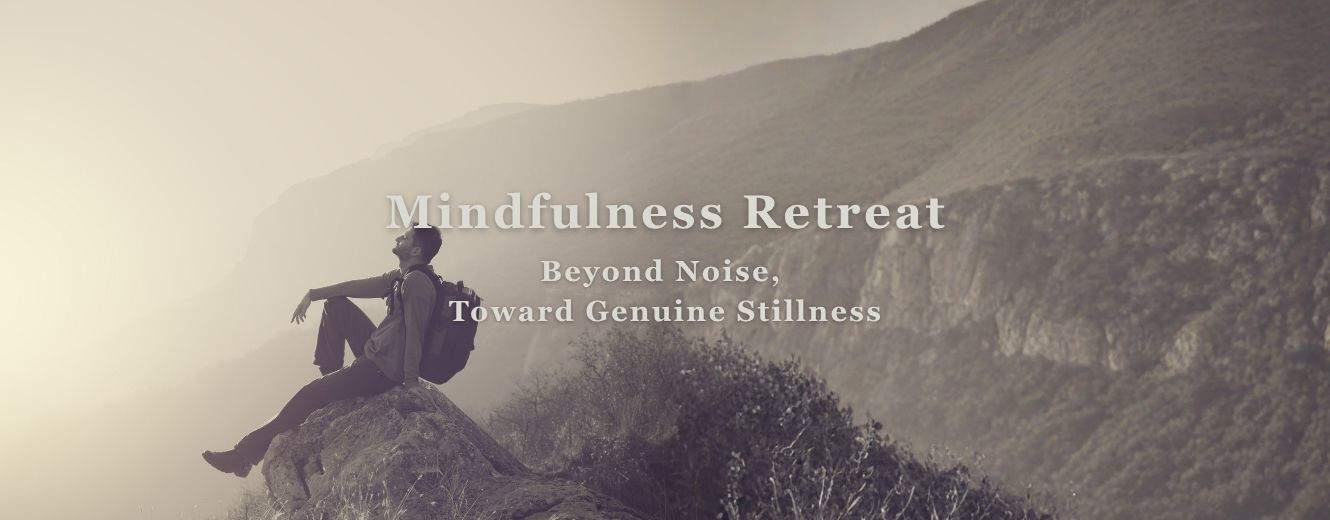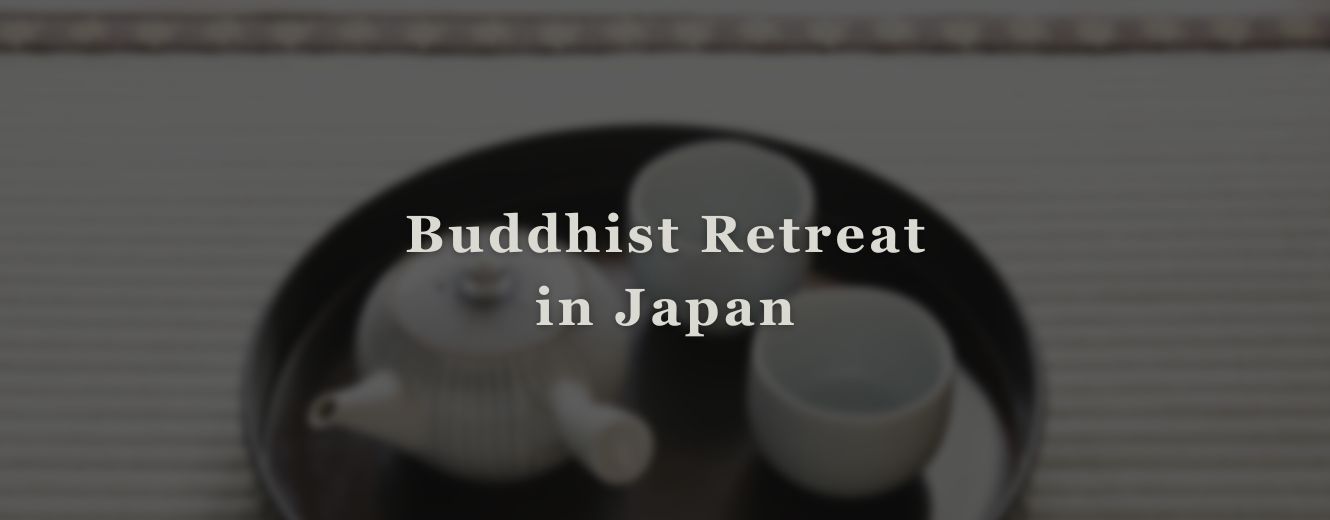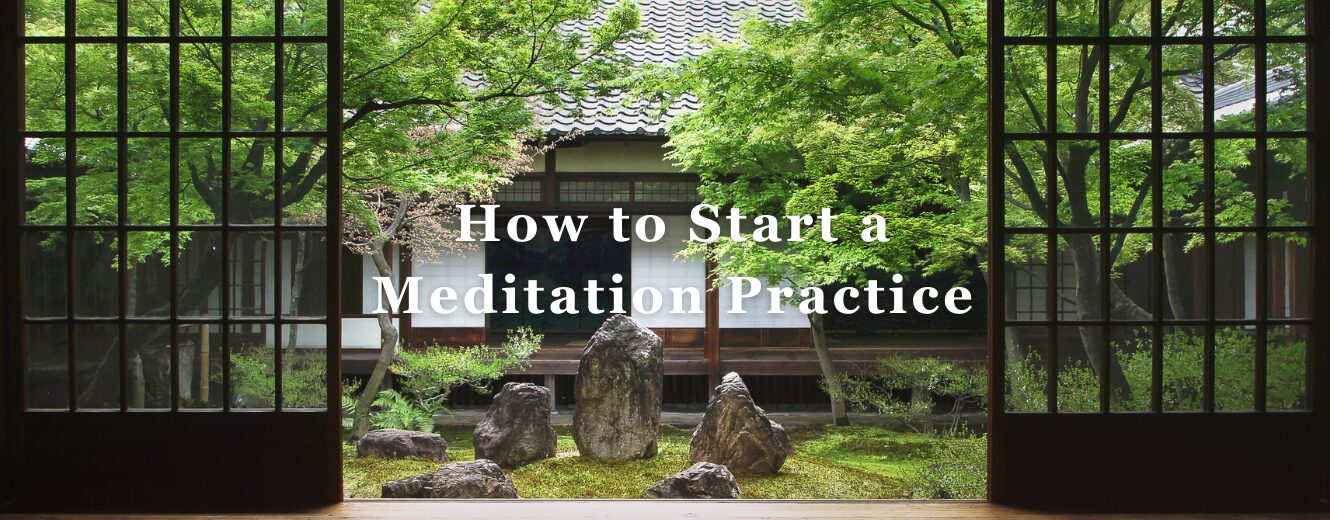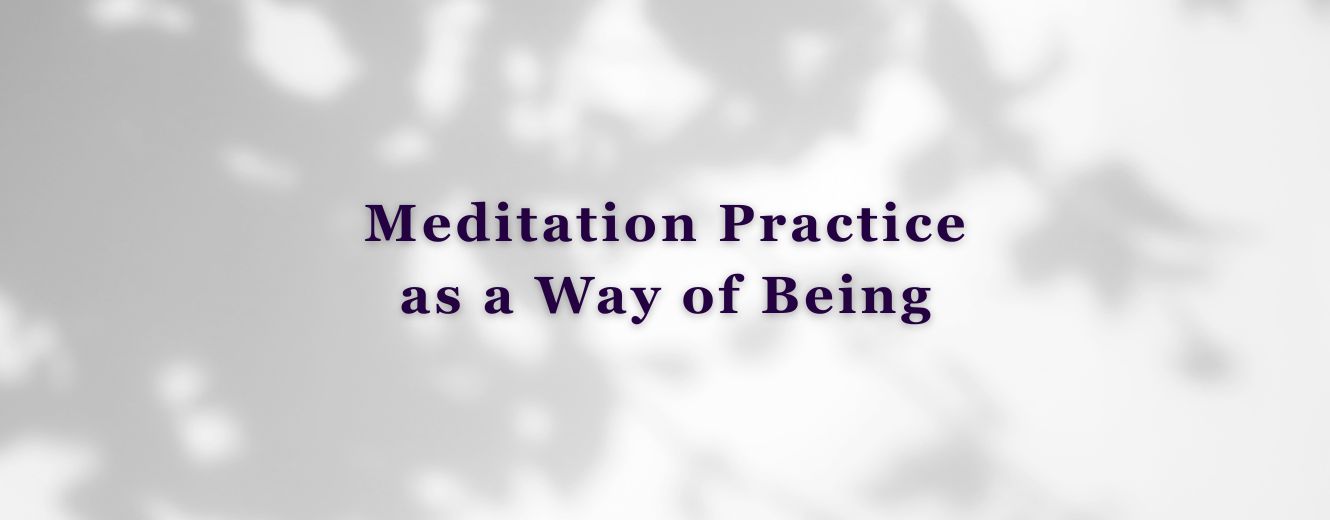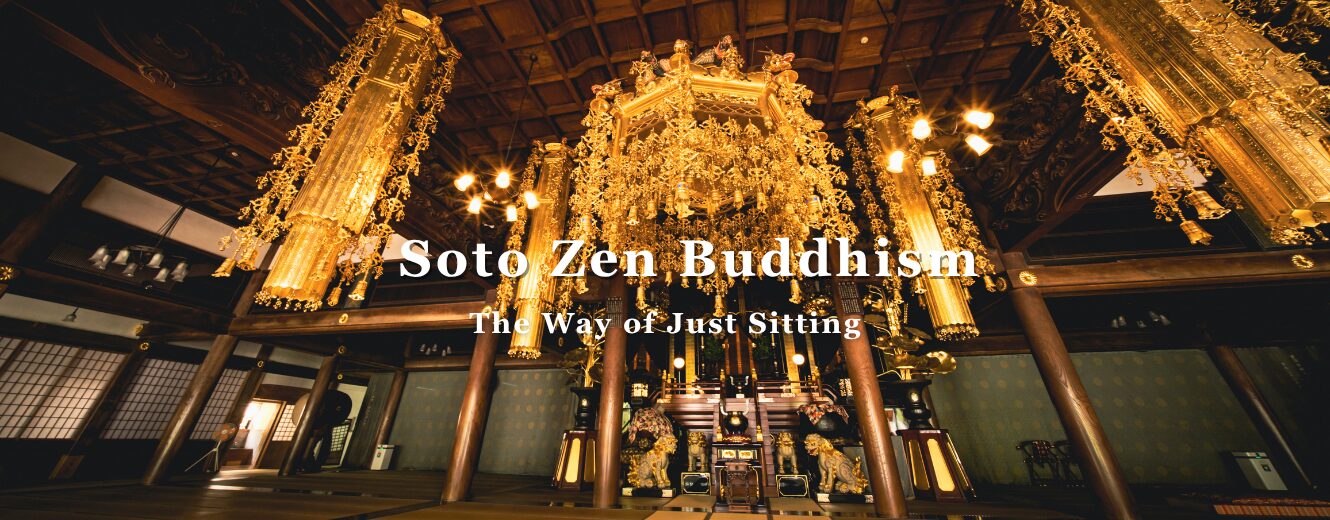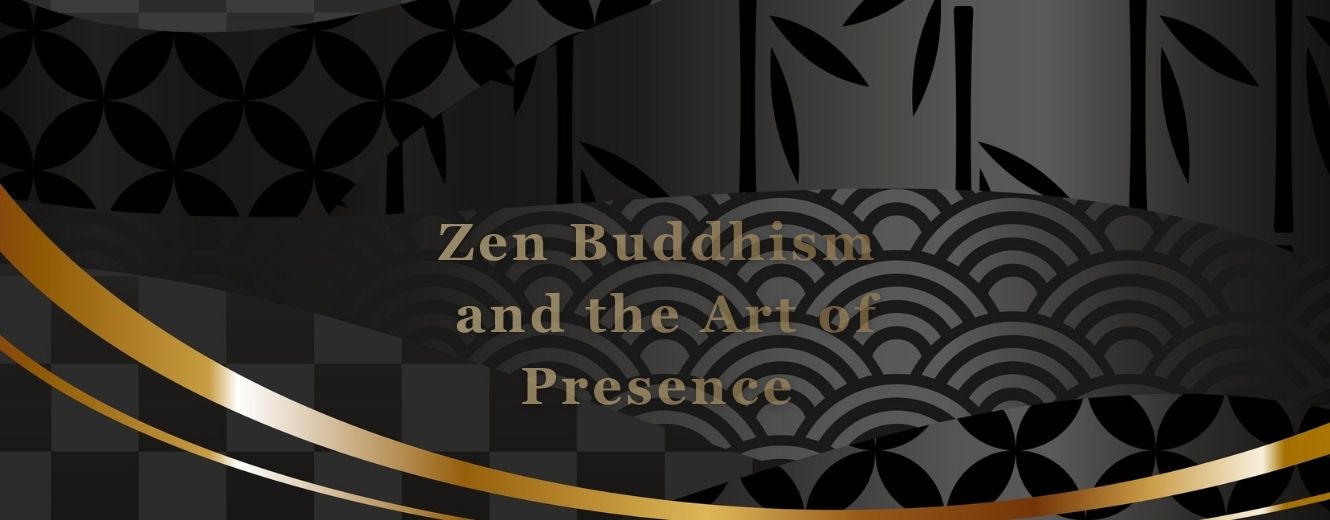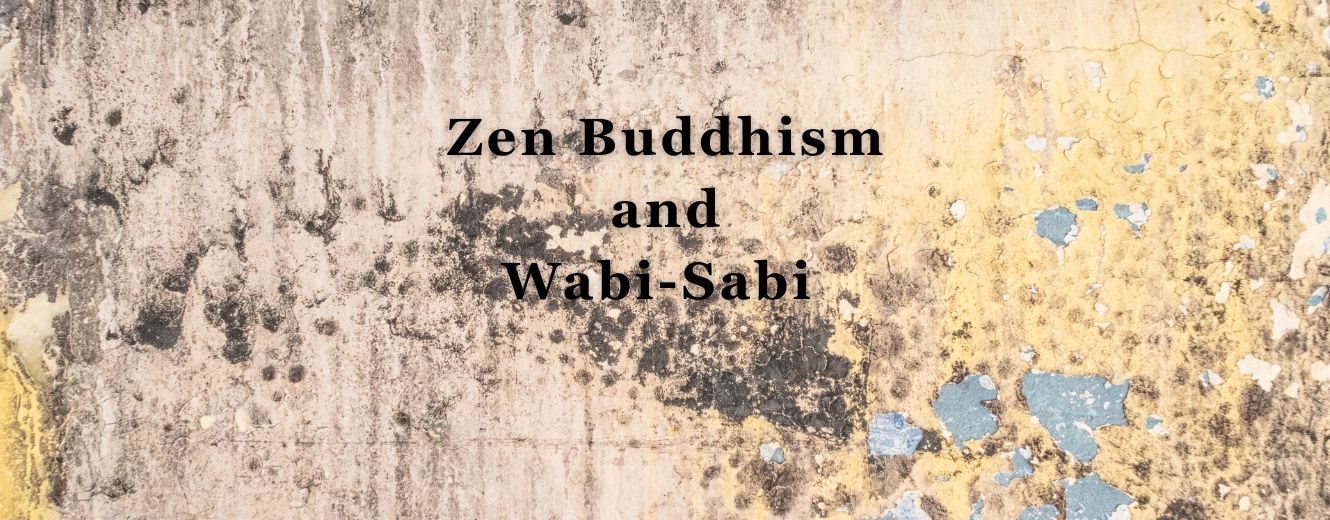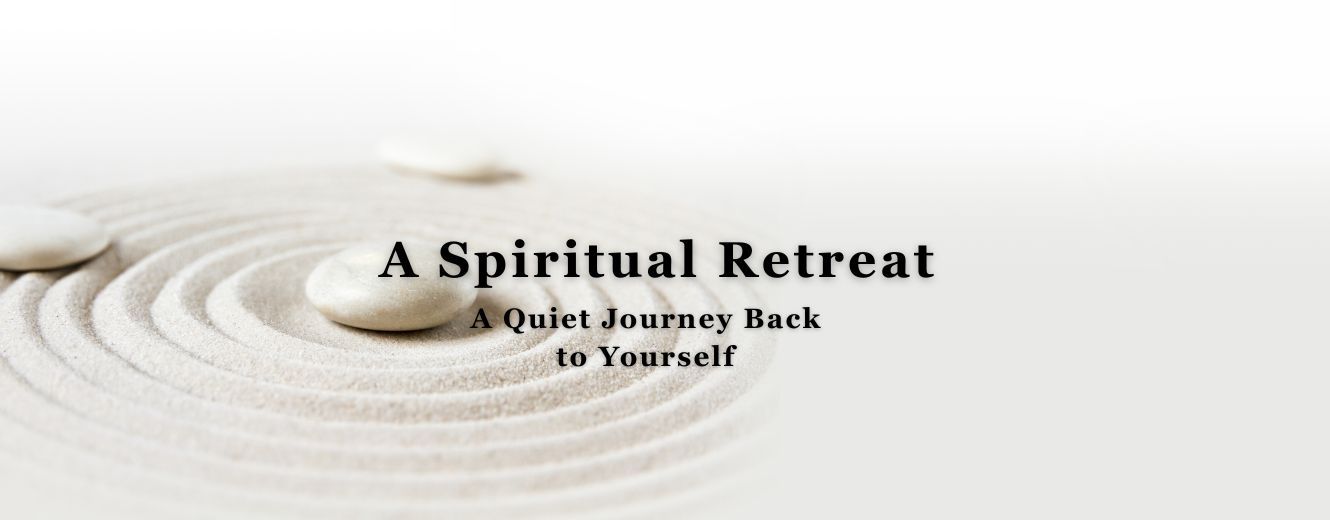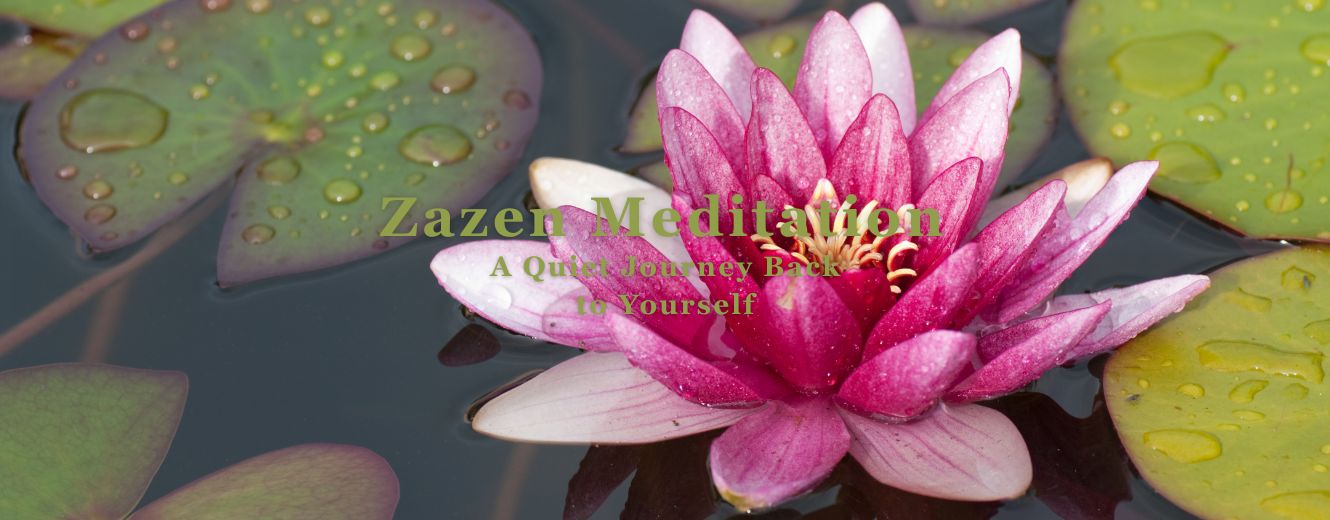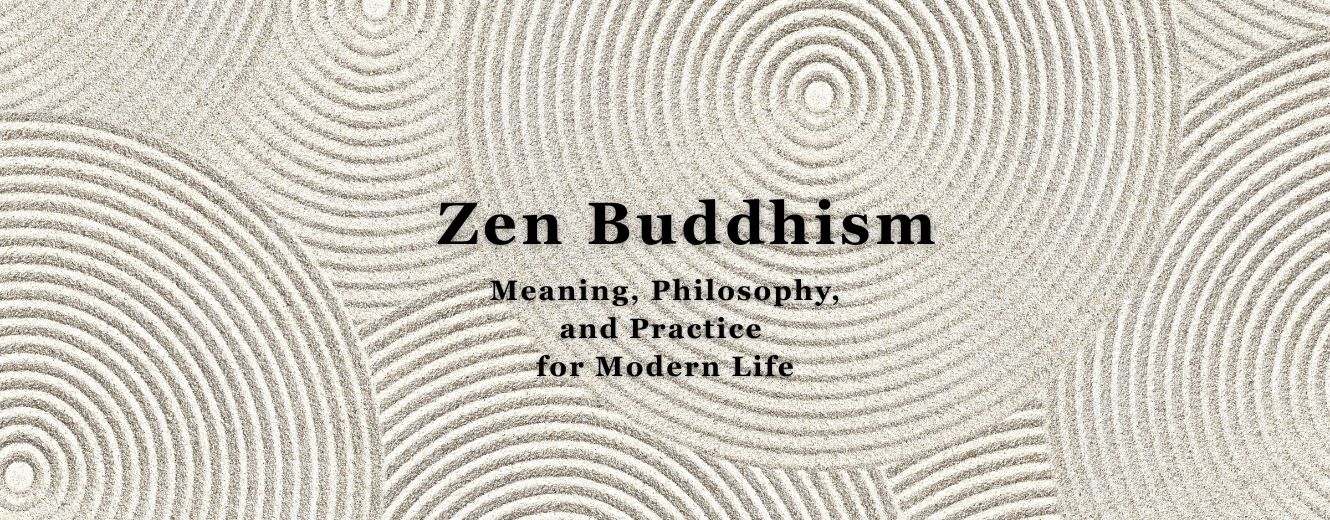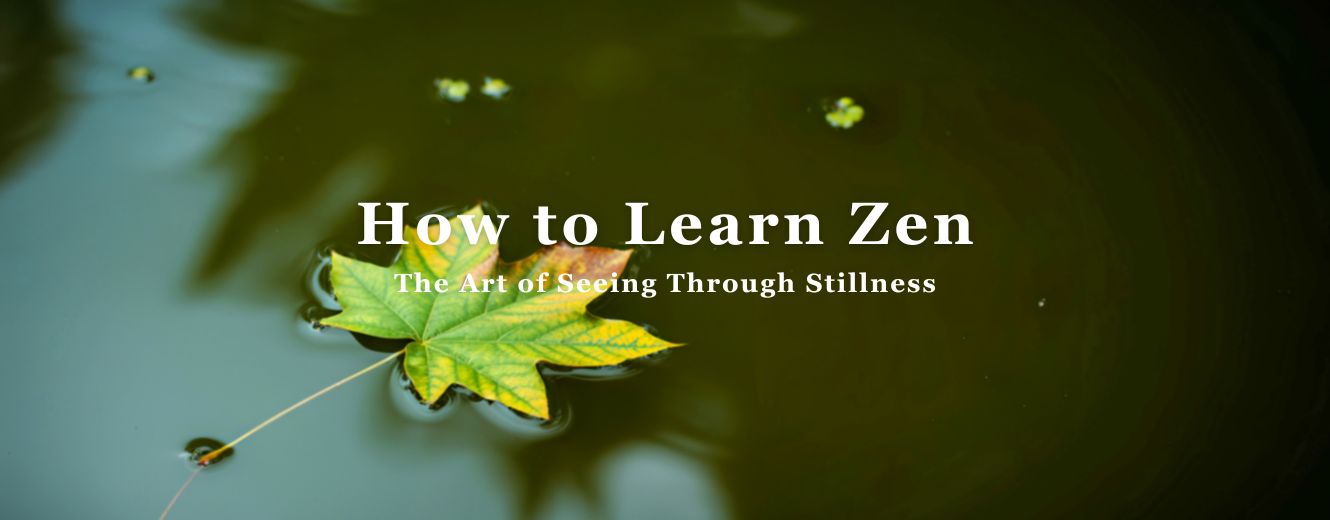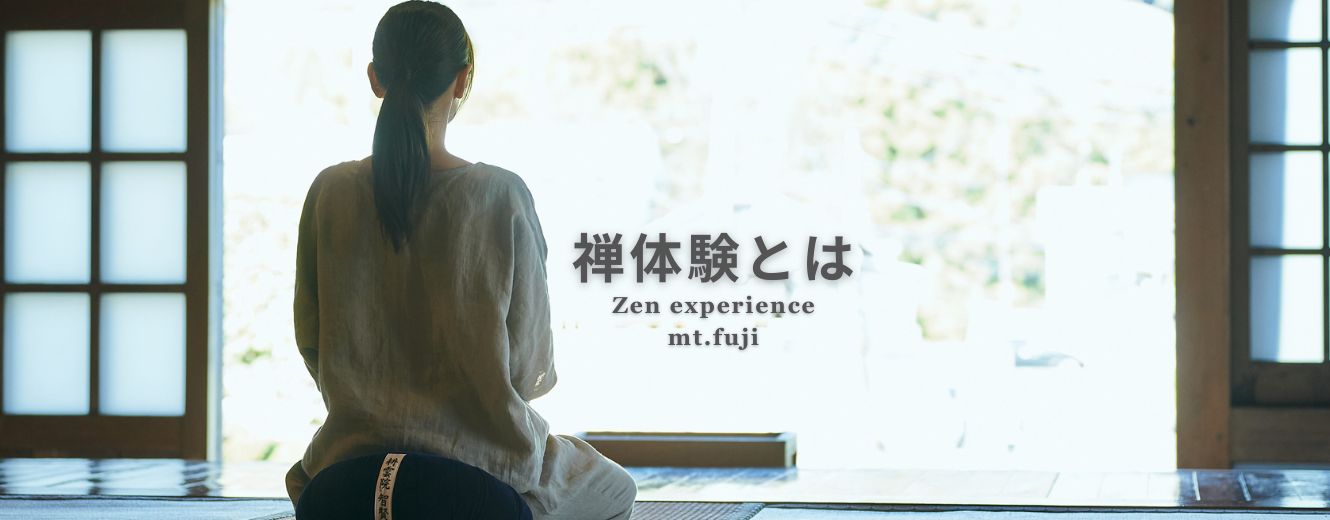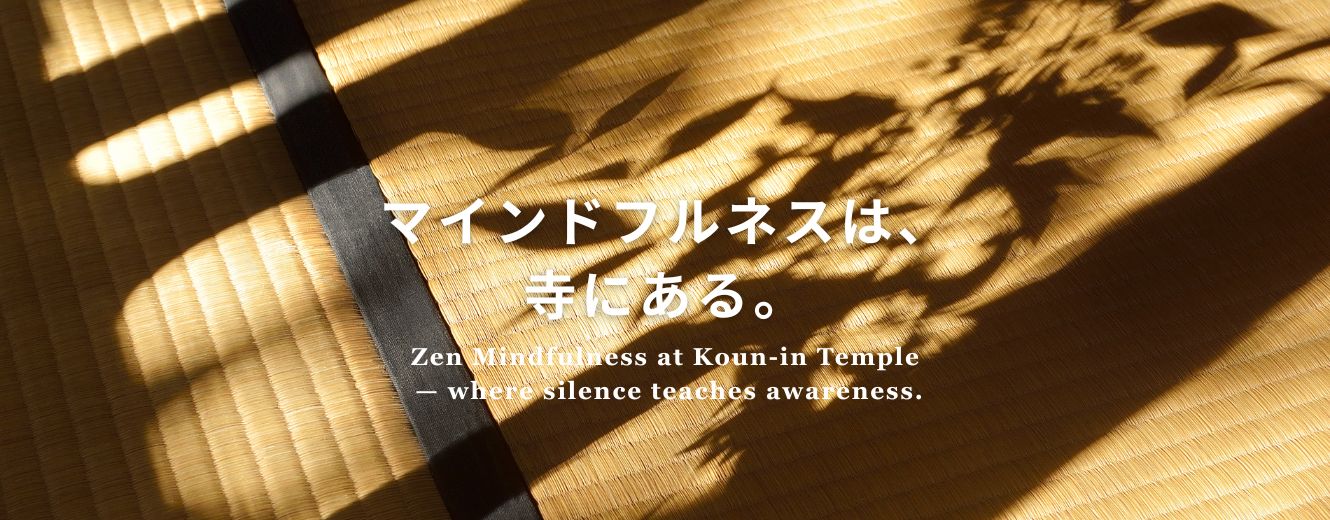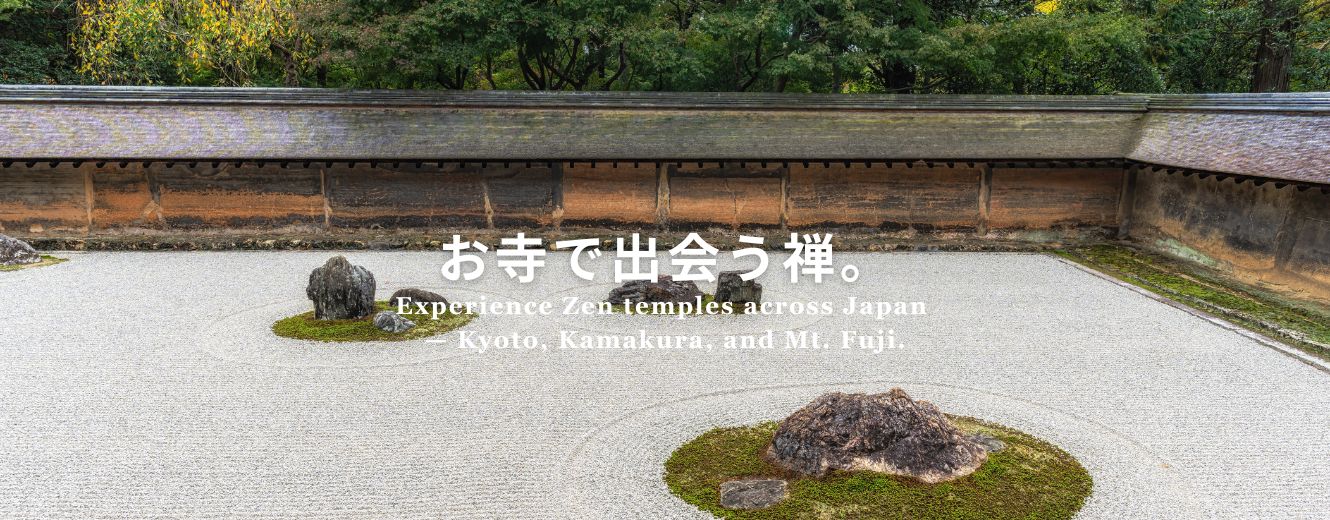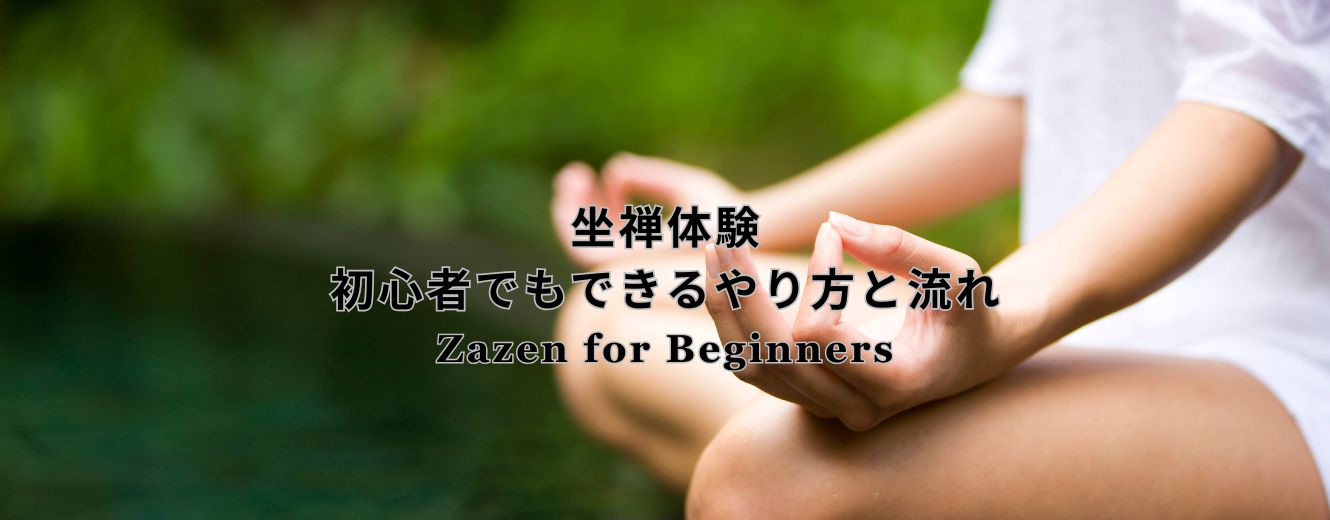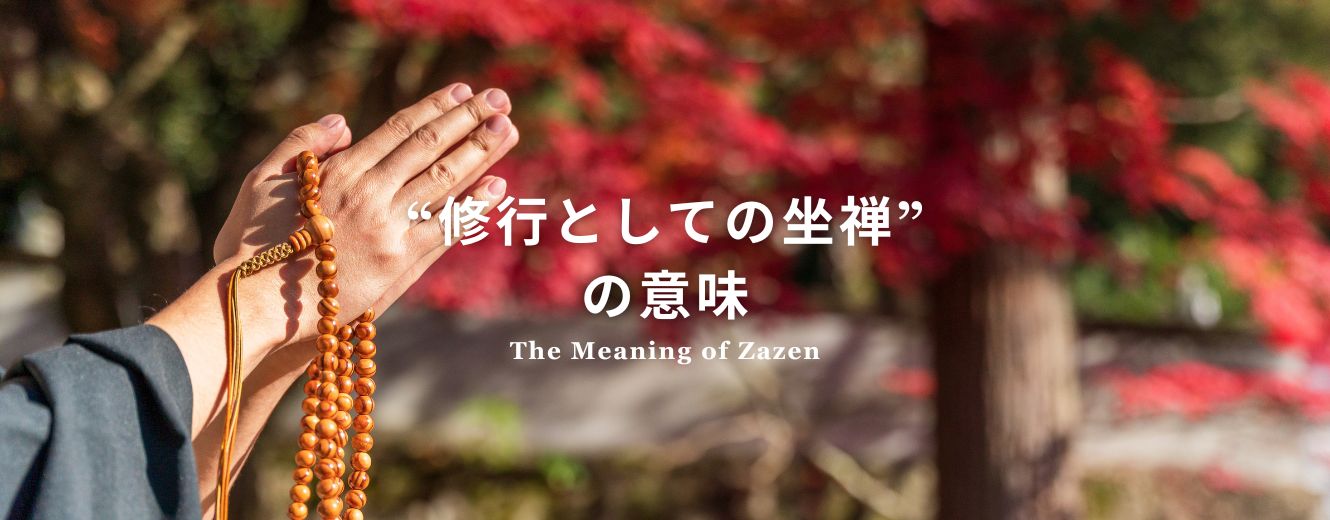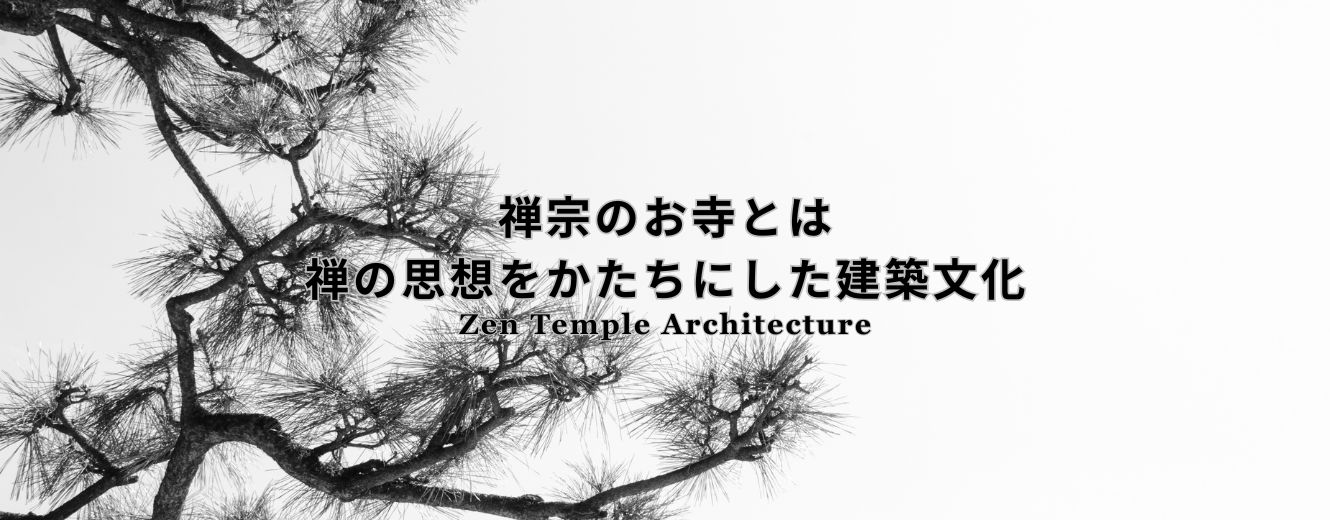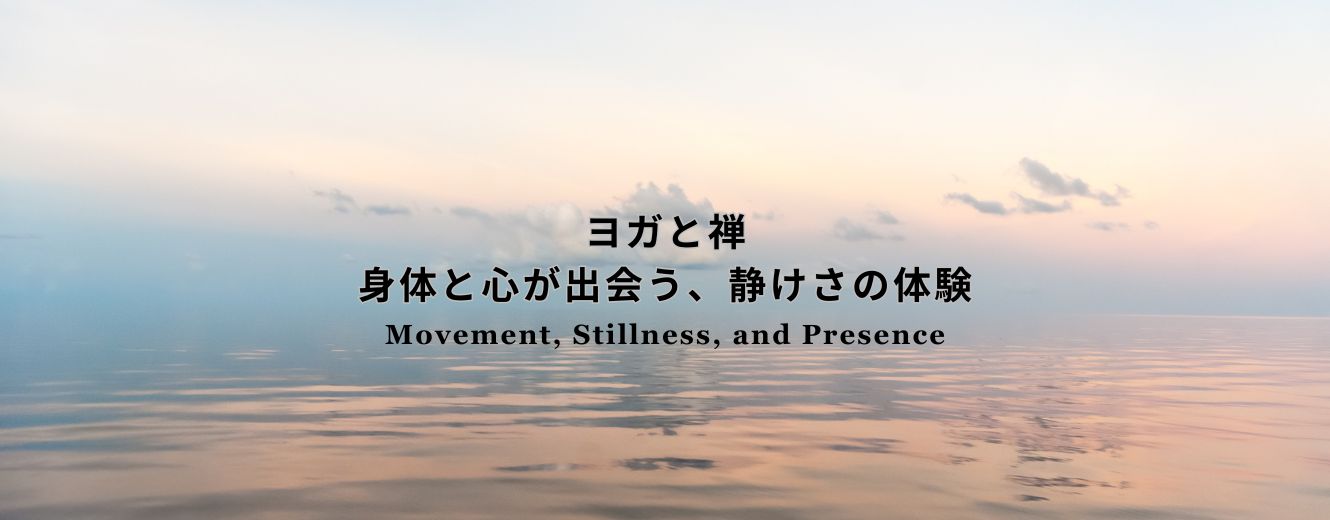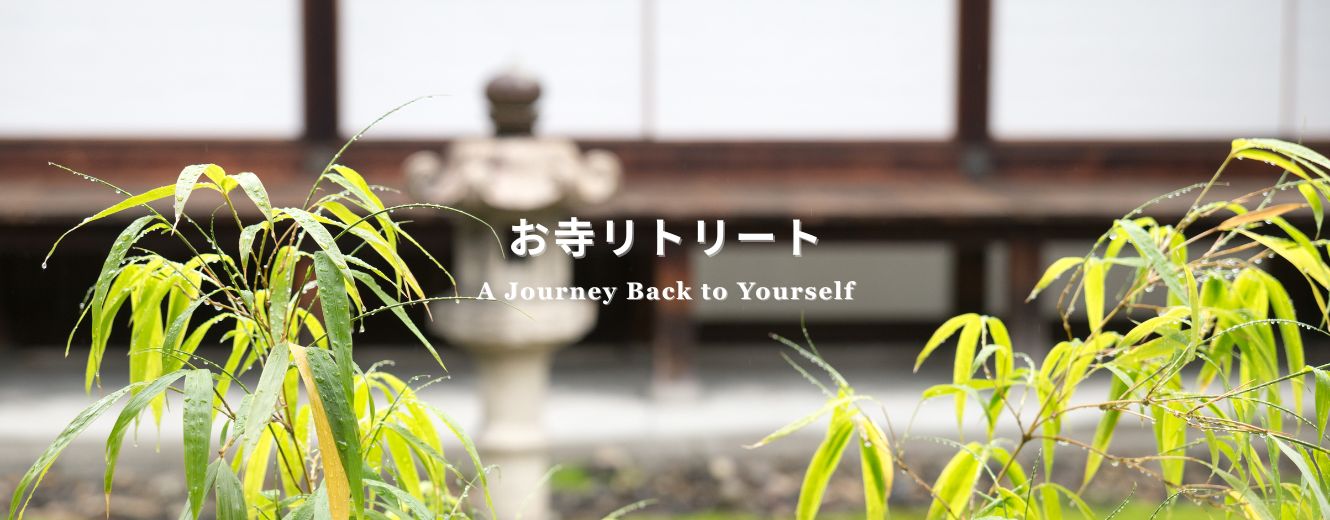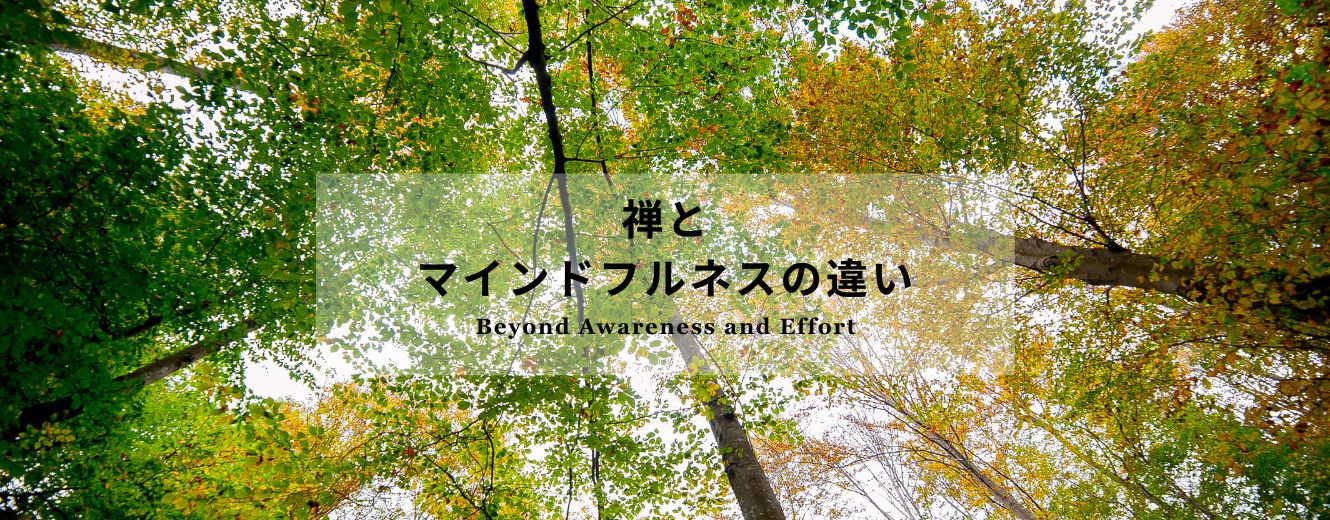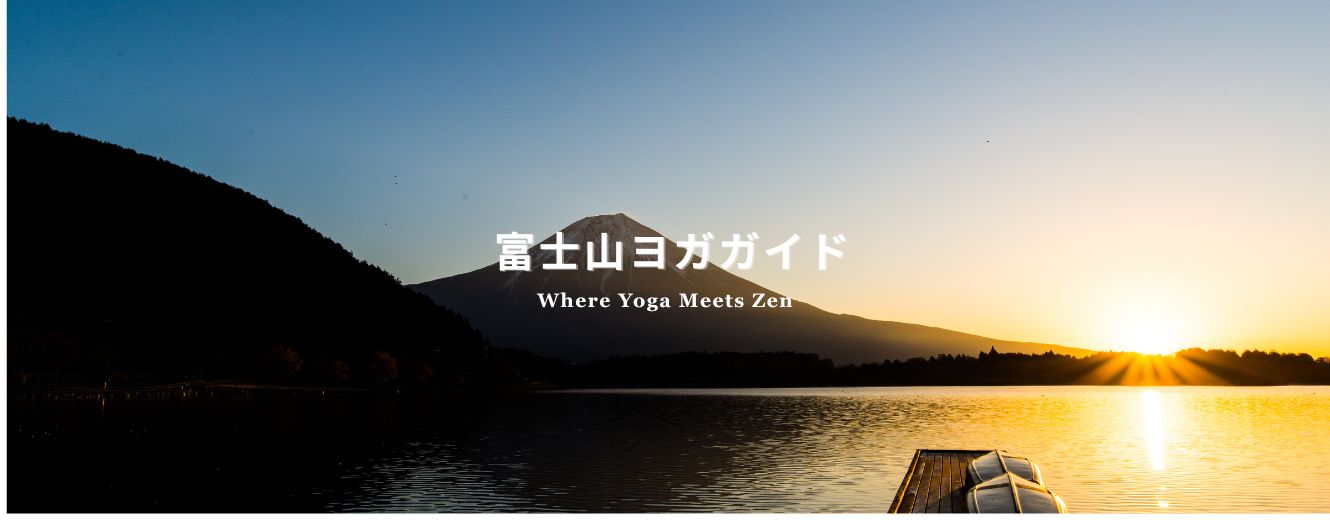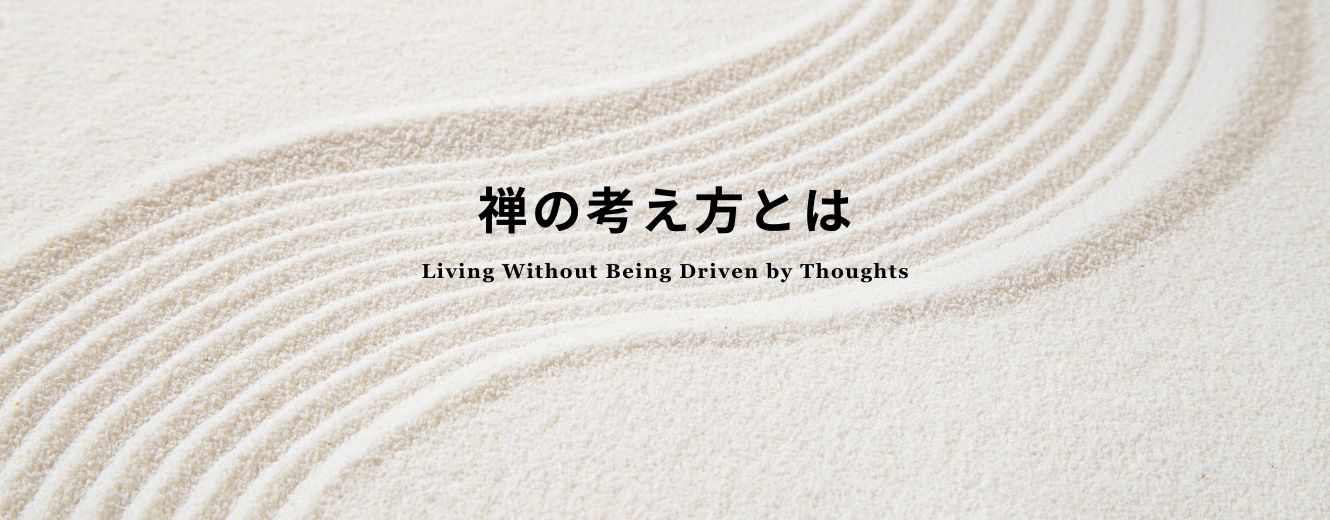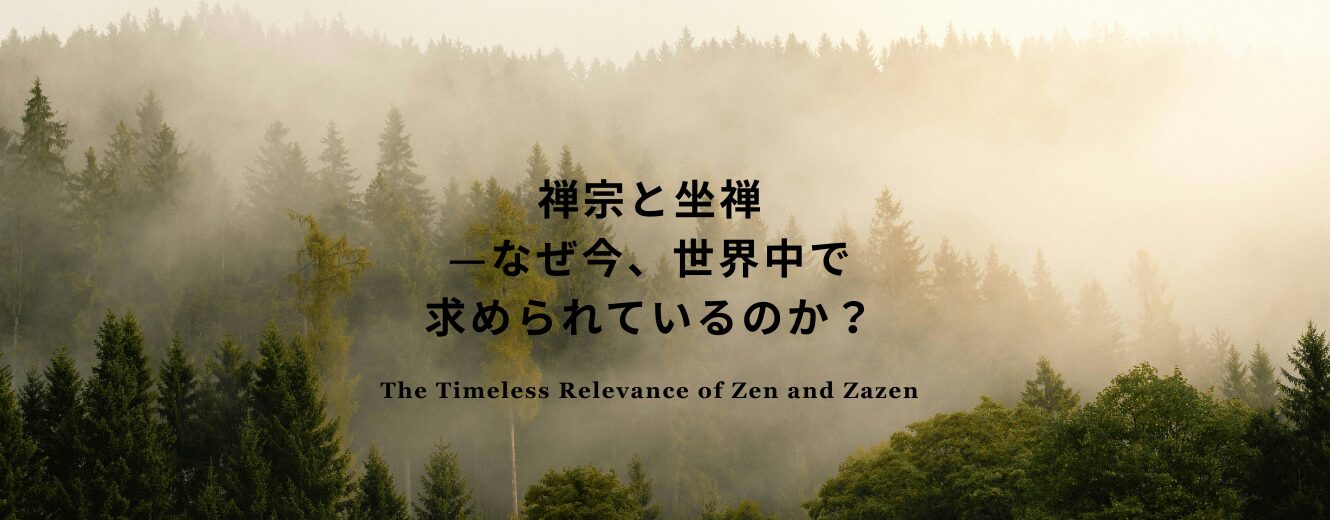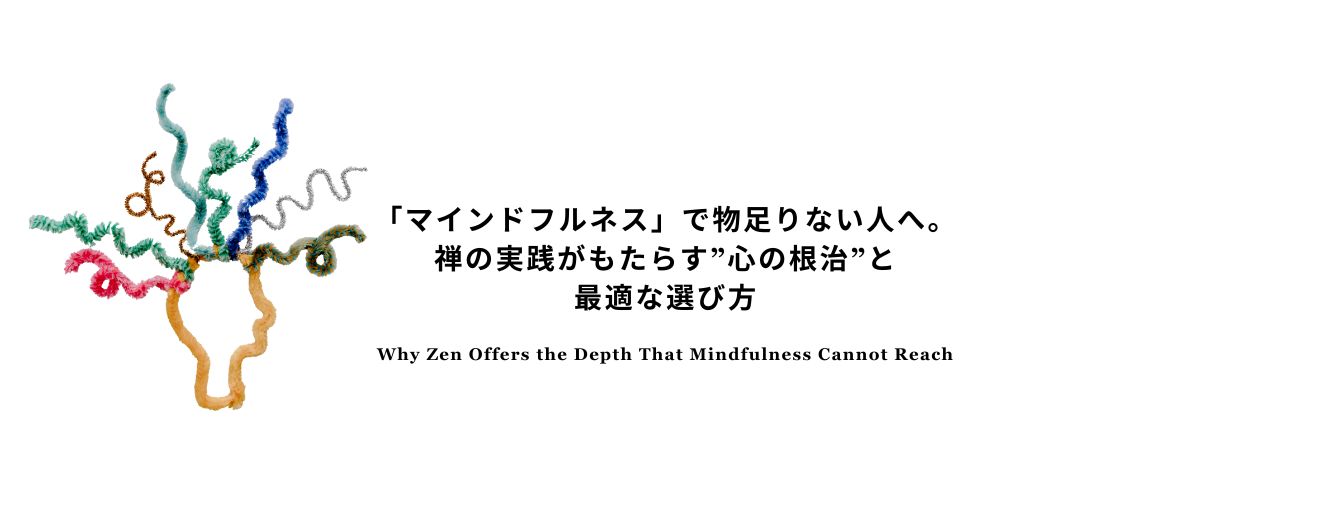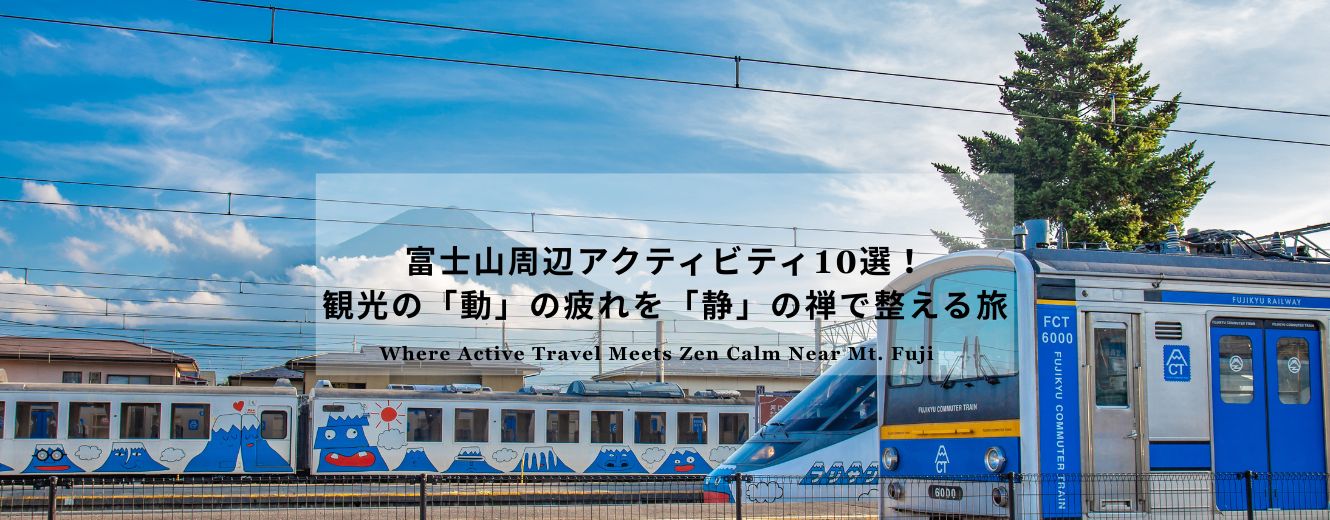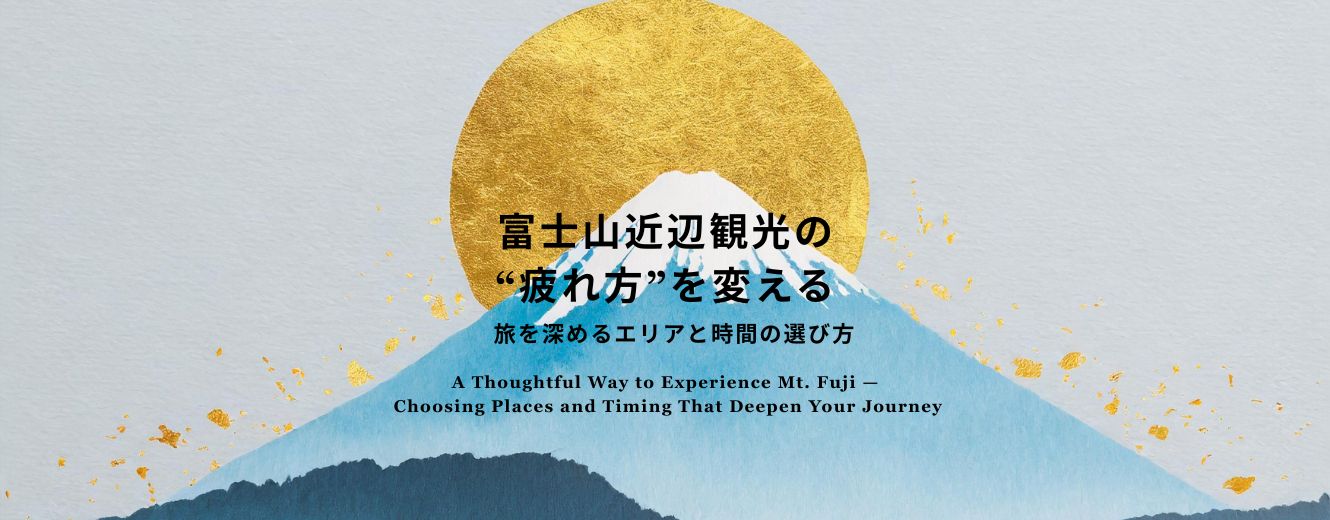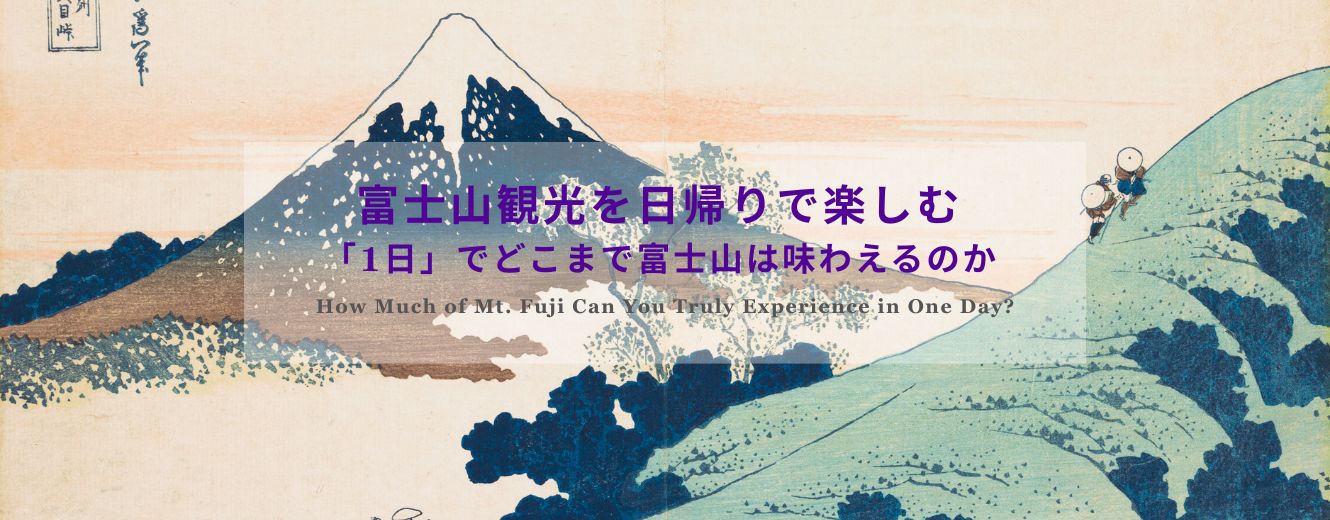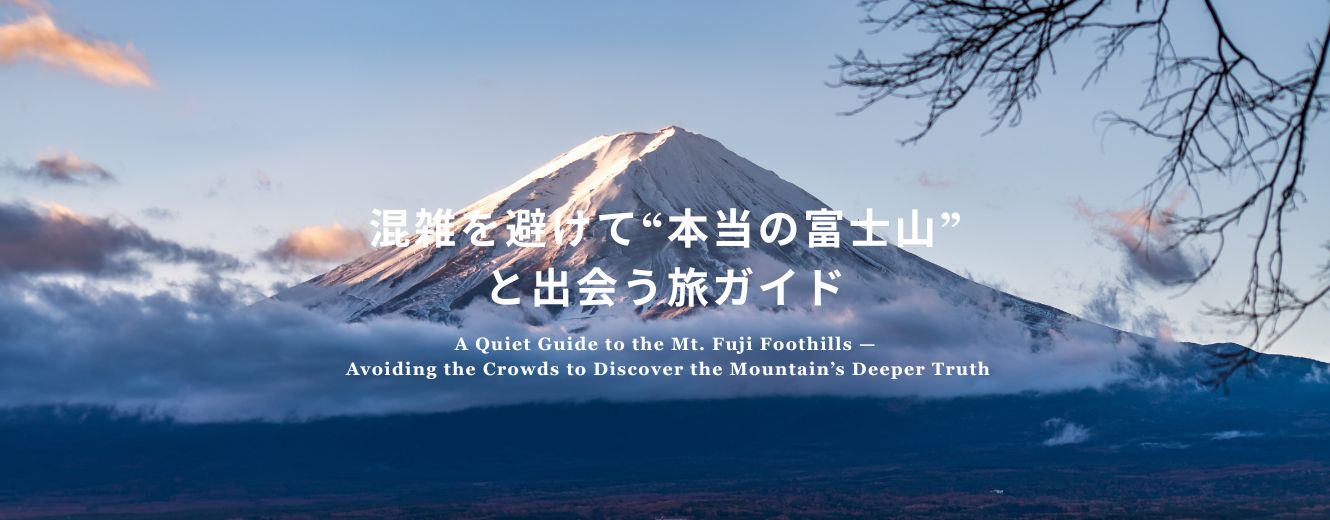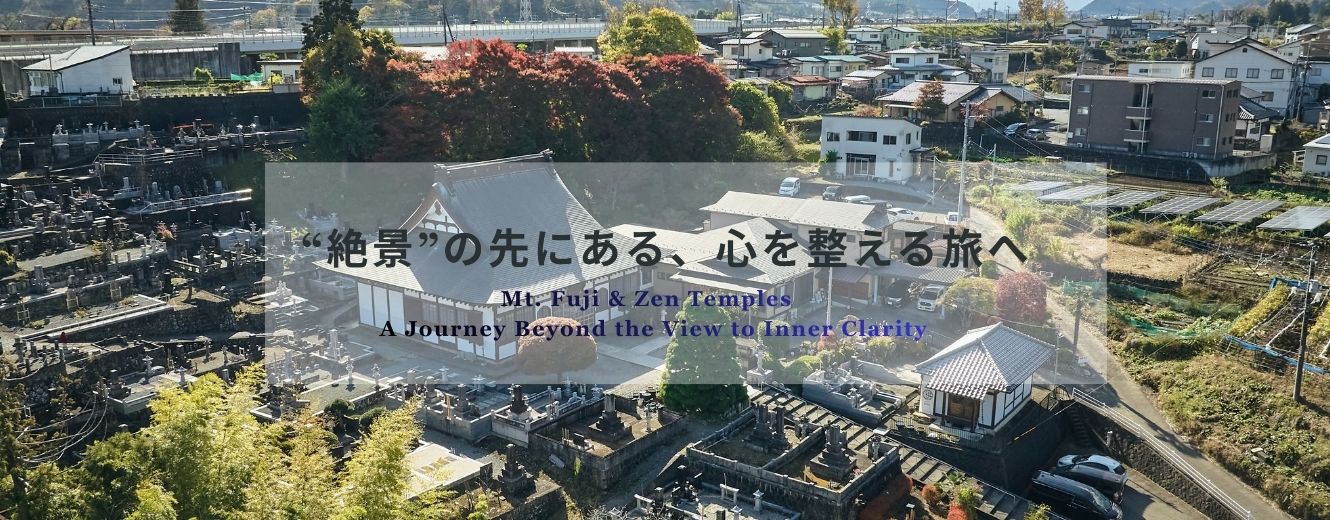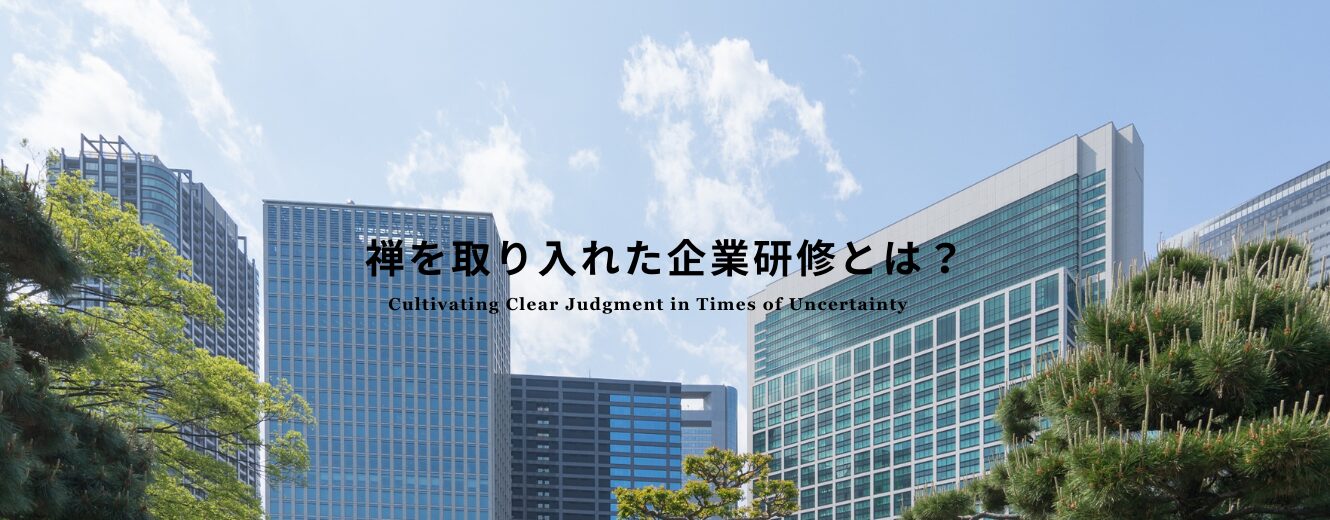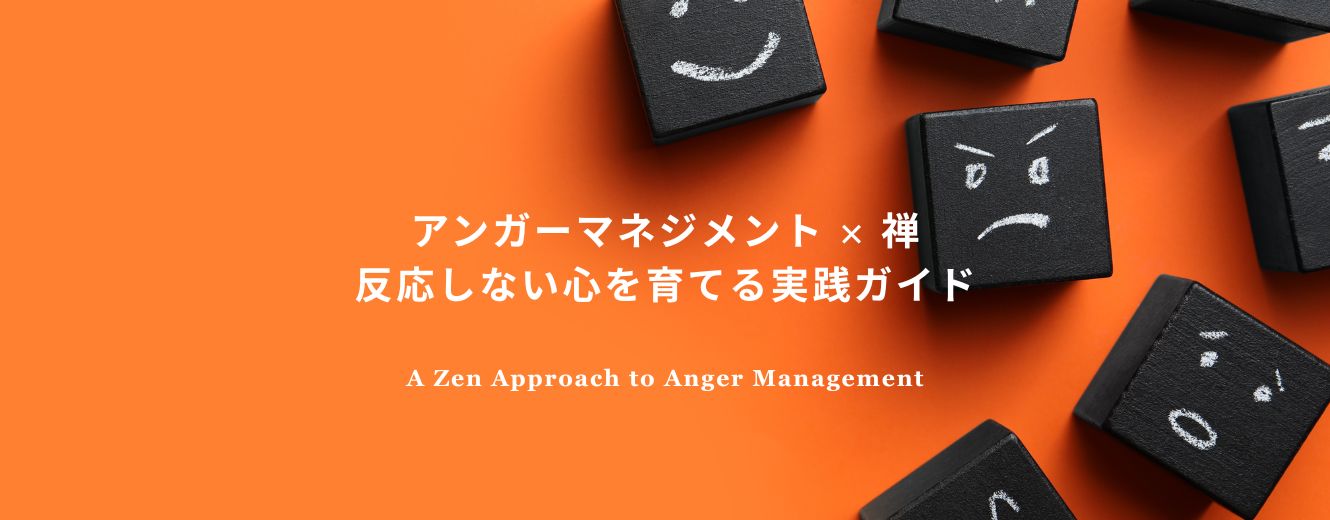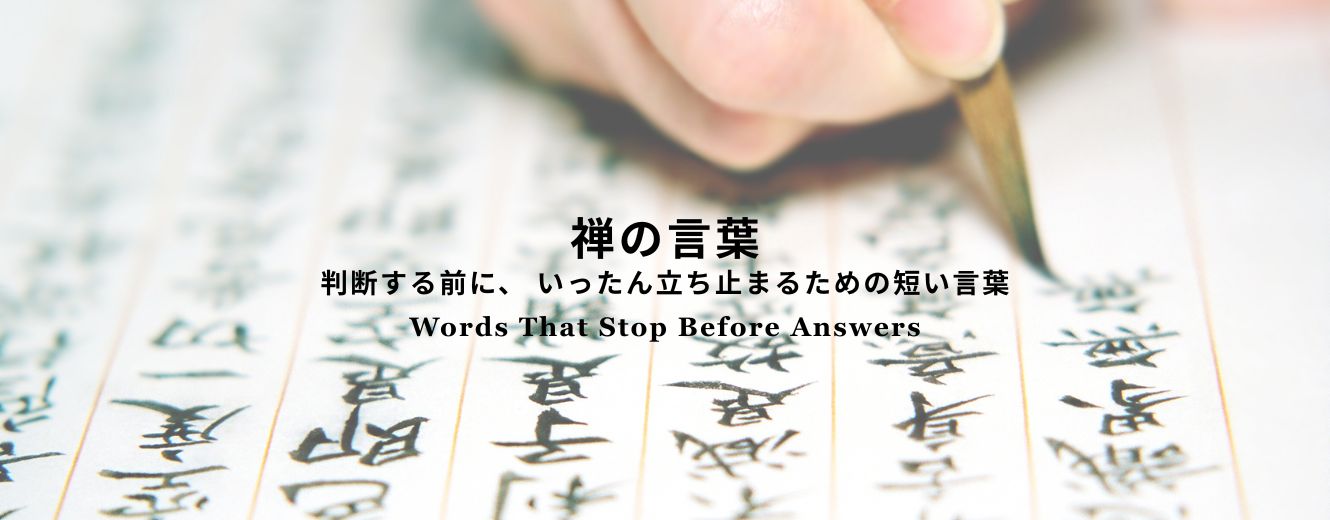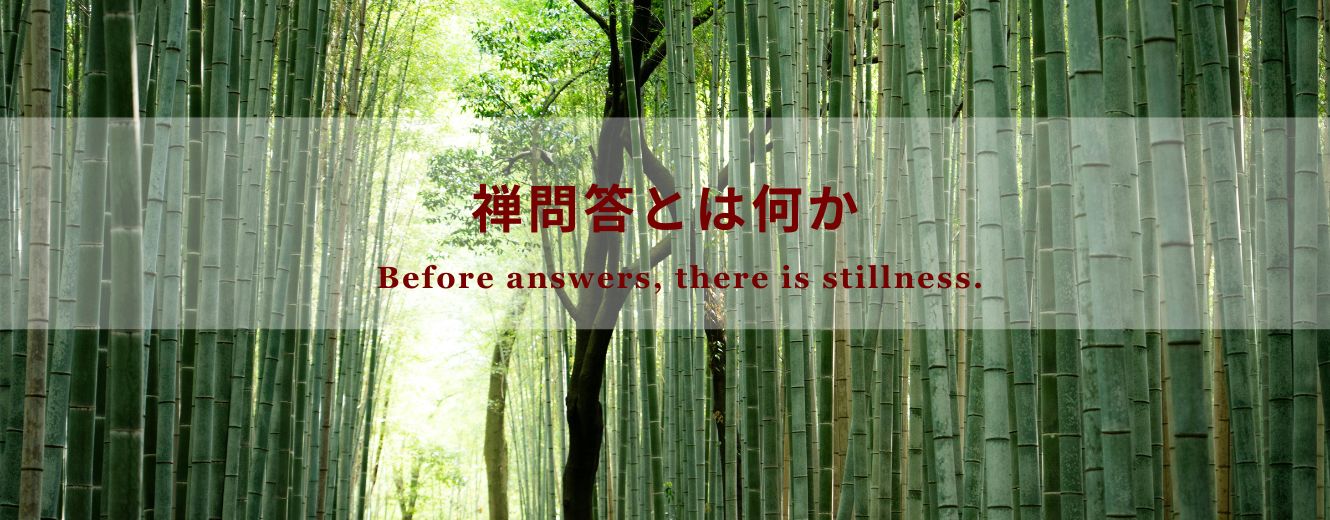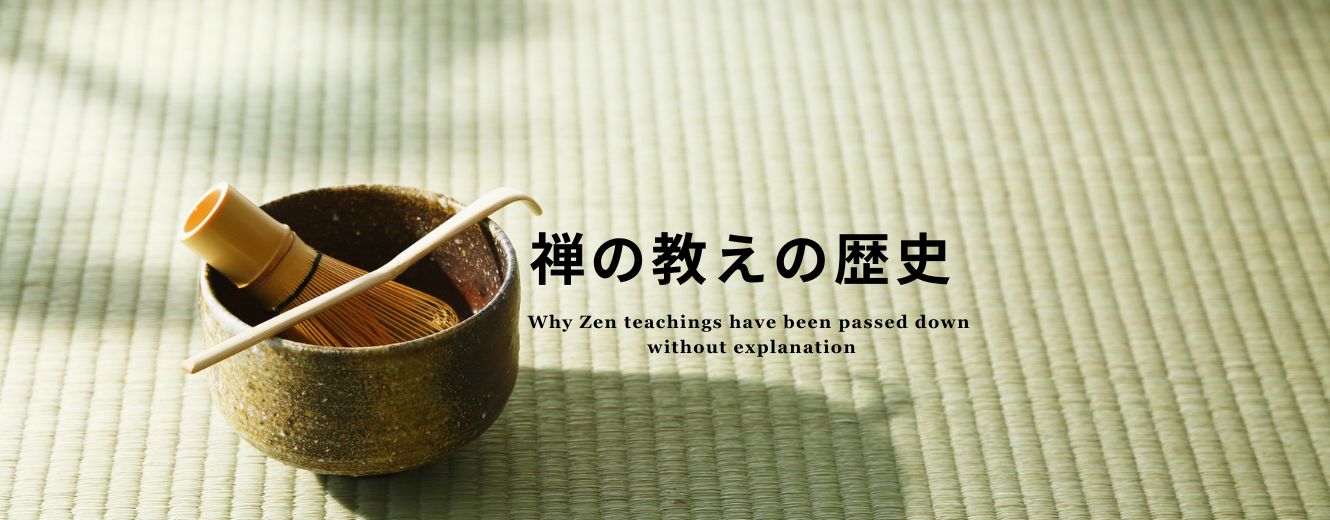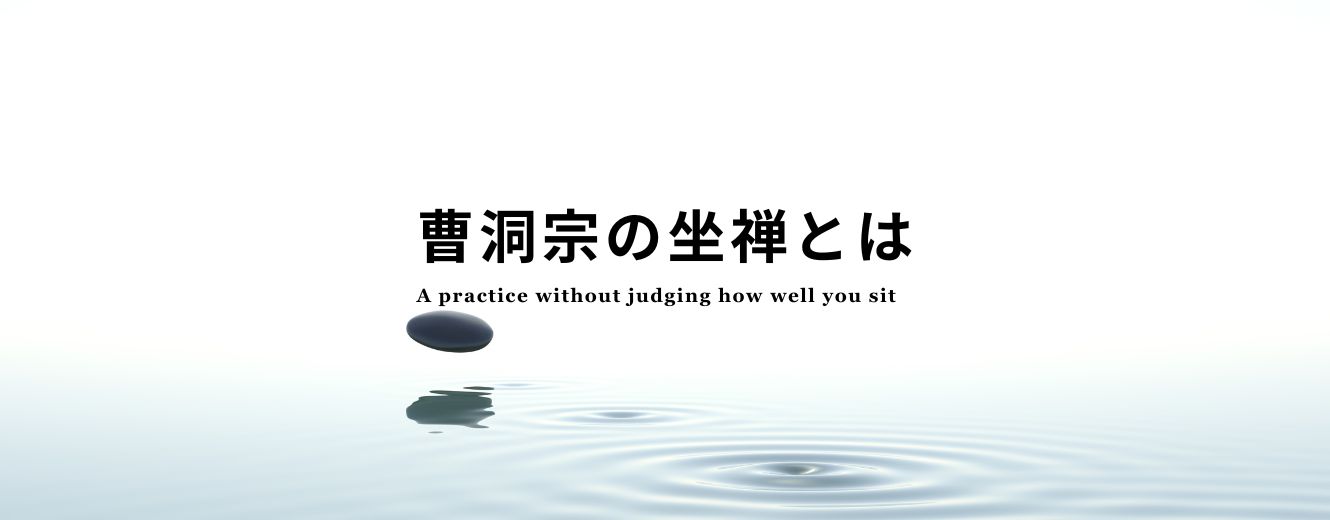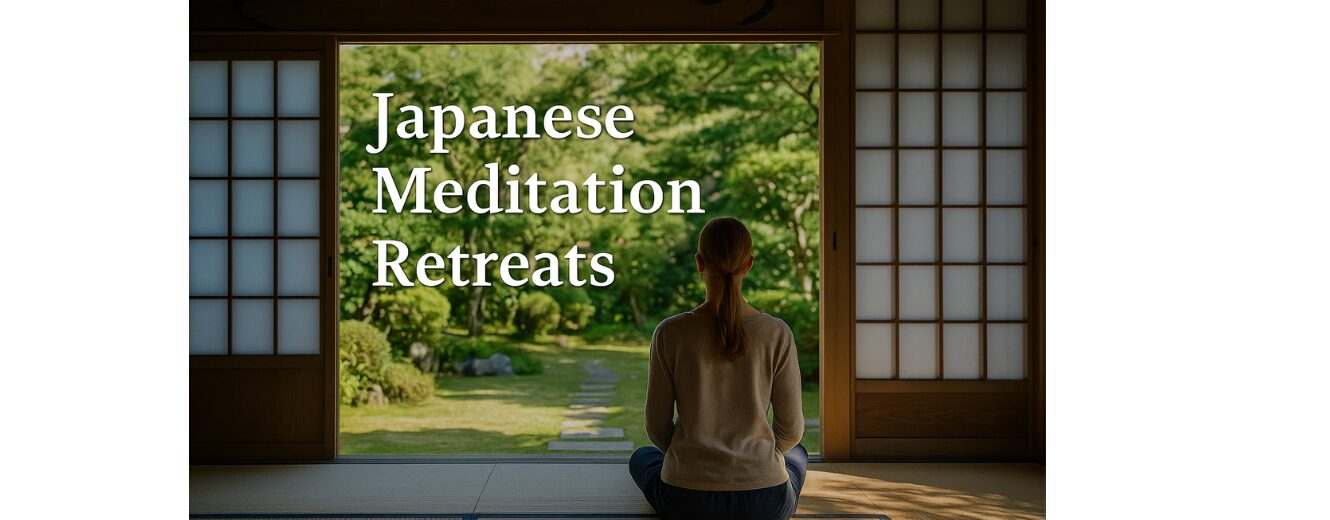
Japanese Meditation Retreats in Japan | Compare Short & Long Programs and How to Choose
Why Choose a Japanese Meditation Retreat?
Japan is the home of Zen. Meditation here is not limited to silent sitting. It flows into tea ceremony, calligraphy, temple gardens, and shojin ryori (Buddhist vegetarian cuisine). To join a Japanese meditation retreat in Japan is to touch this living spirit of Zen woven into daily life.
Japanese meditation, known as zazen, has been practiced in Zen temples for centuries. A retreat in Japan offers the chance to experience this tradition in a living way.
Have you ever finished a weekend only to feel heavy in both body and mind when Monday comes?
If you are searching for a Japanese meditation retreat, you are probably looking for more than rest. You are seeking a way to breathe again, to restore balance, and to feel like yourself once more.
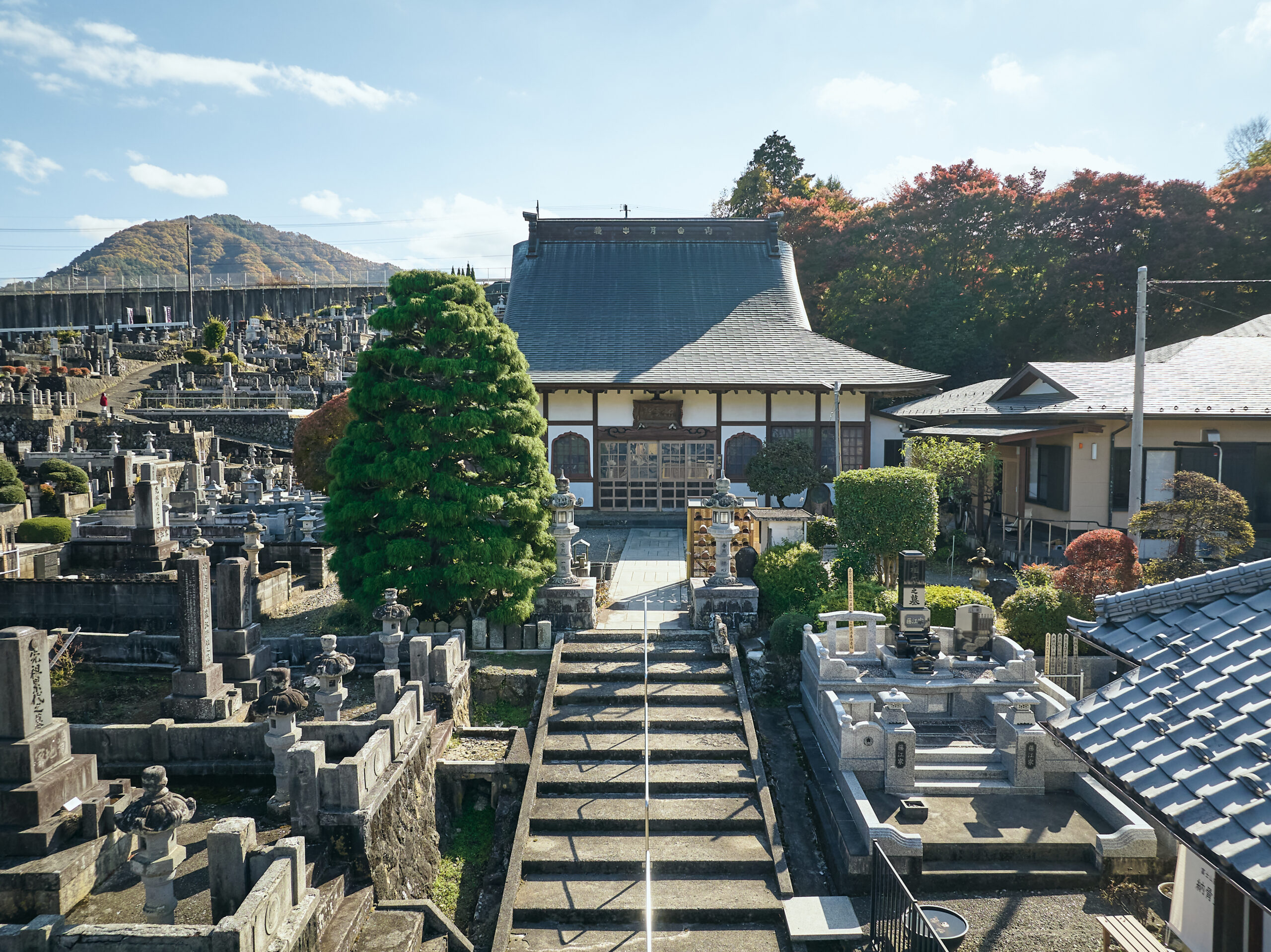
What Is a Japanese Meditation Retreat? — A Monk’s View
A Japanese Meditation retreat is not simply a quiet pause. For us monks, it is a moment to rediscover what it truly means to live.
Zazen is not about gaining something new—it is about returning to what you already are. Sitting upright, feeling the breath, noticing “this very moment”—the heart softens and clears.
In today’s world, we are taught to run faster and do more. Zen reminds us of the opposite truth: that stopping, pausing, and simply being can be deeply healing.
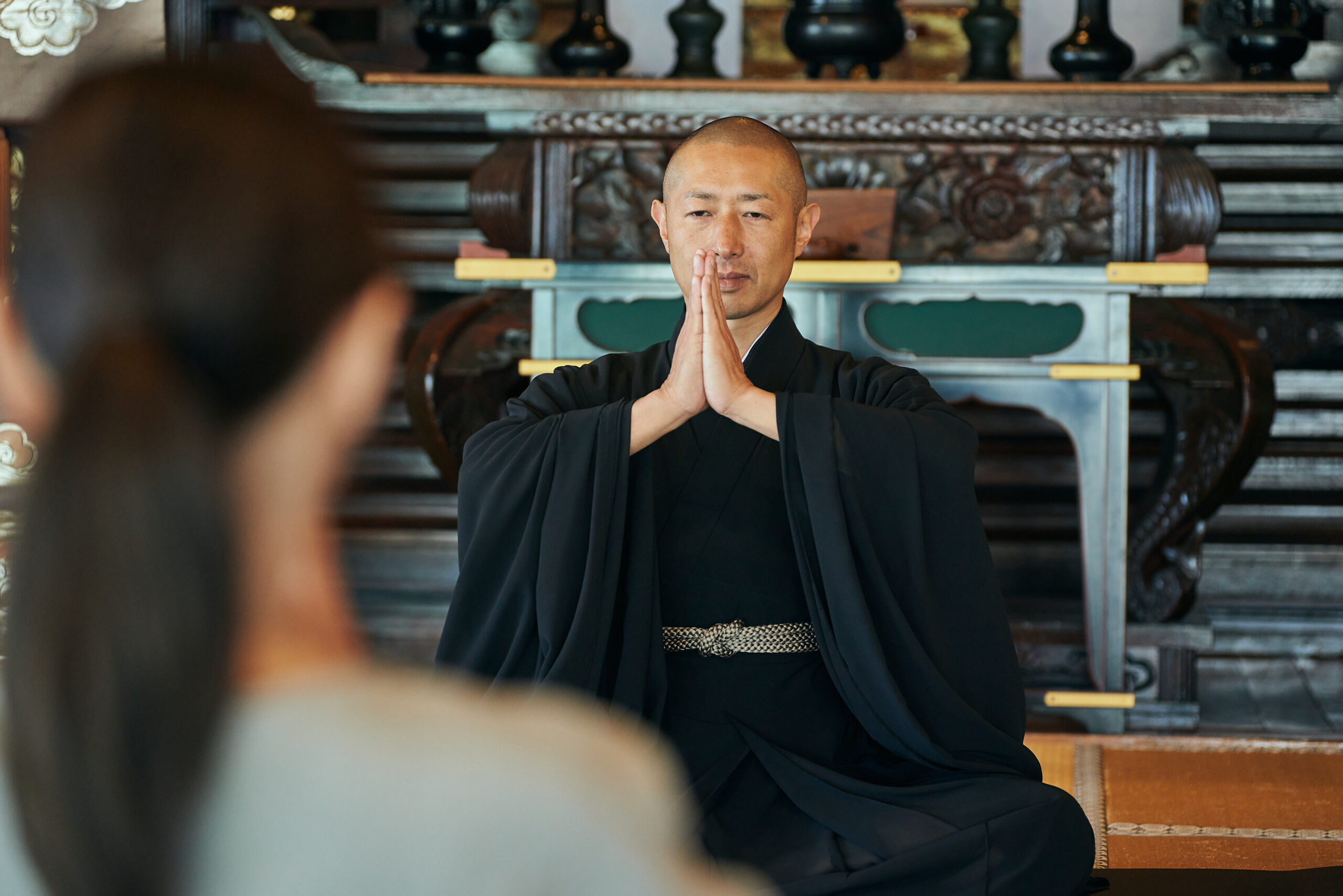
Gentle Benefits of a Japanese Meditation Retreat
- Ease stress and find mental clarity
- Reconnect with your true self
- Experience Japanese culture and Zen philosophy with your own senses
- Carry home balance and small practices for everyday life
Even a short retreat plants a quiet seed of stillness that continues to grow long after you return home.
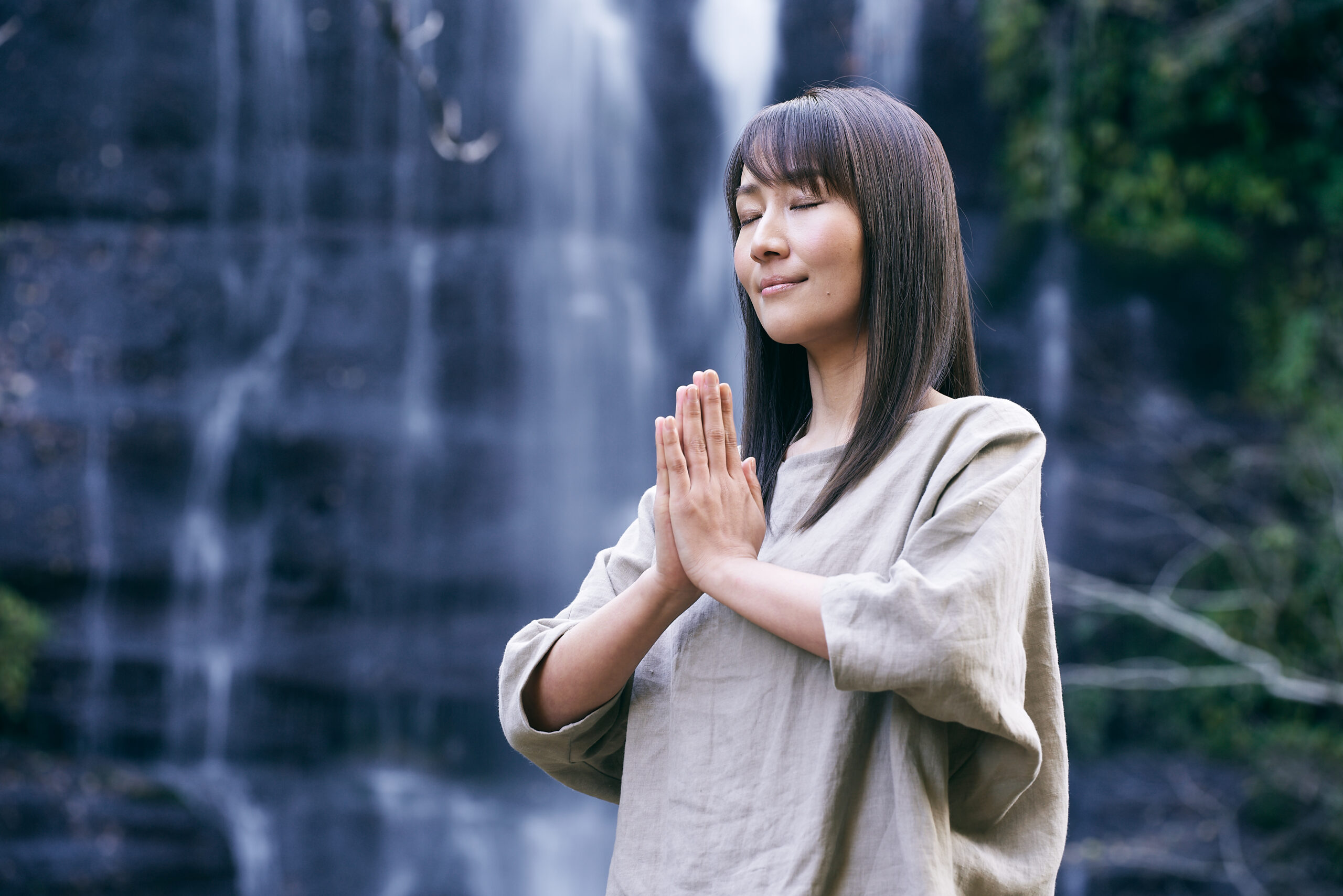
Short-Term Retreats (Half-day Programs)
- Duration: A few hours to half a day
- Content: Zazen, yoga, sutra copying, temple tour, and optional shojin ryori
- Best For: Travelers with limited time who want an authentic but accessible experience
- Atmosphere: Welcoming and beginner-friendly, no overnight stay required
japanese meditation retreat are designed for busy travelers. Even a few hours can leave you with a sense of stillness and balance that you can carry home.
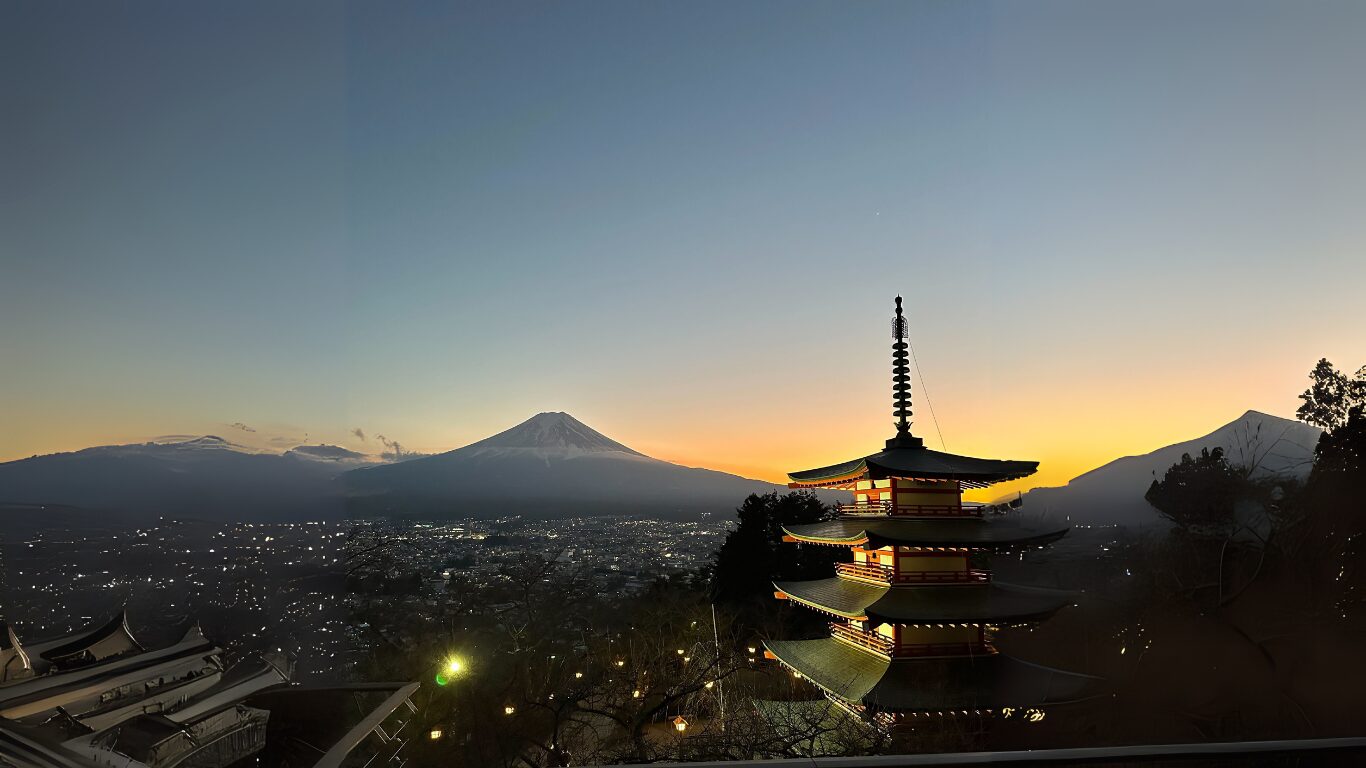
Overnight Retreats (1–3 Days)
- Duration: 1 to 3 nights
- Content: Morning and evening zazen, temple lodging, shojin ryori, light samu (temple work), and cultural activities
- Best For: Visitors who want a deeper experience than a single session, but don’t have weeks to spend
- Atmosphere: Structured but still open to travelers, offering a glimpse of temple life
Many temples in Japan now offer overnight retreats where you stay in simple temple lodgings, join monks in meditation, and share meals. These programs are not strict monastic training, but immersive cultural experiences—an opportunity to live “a day in the life of Zen.”
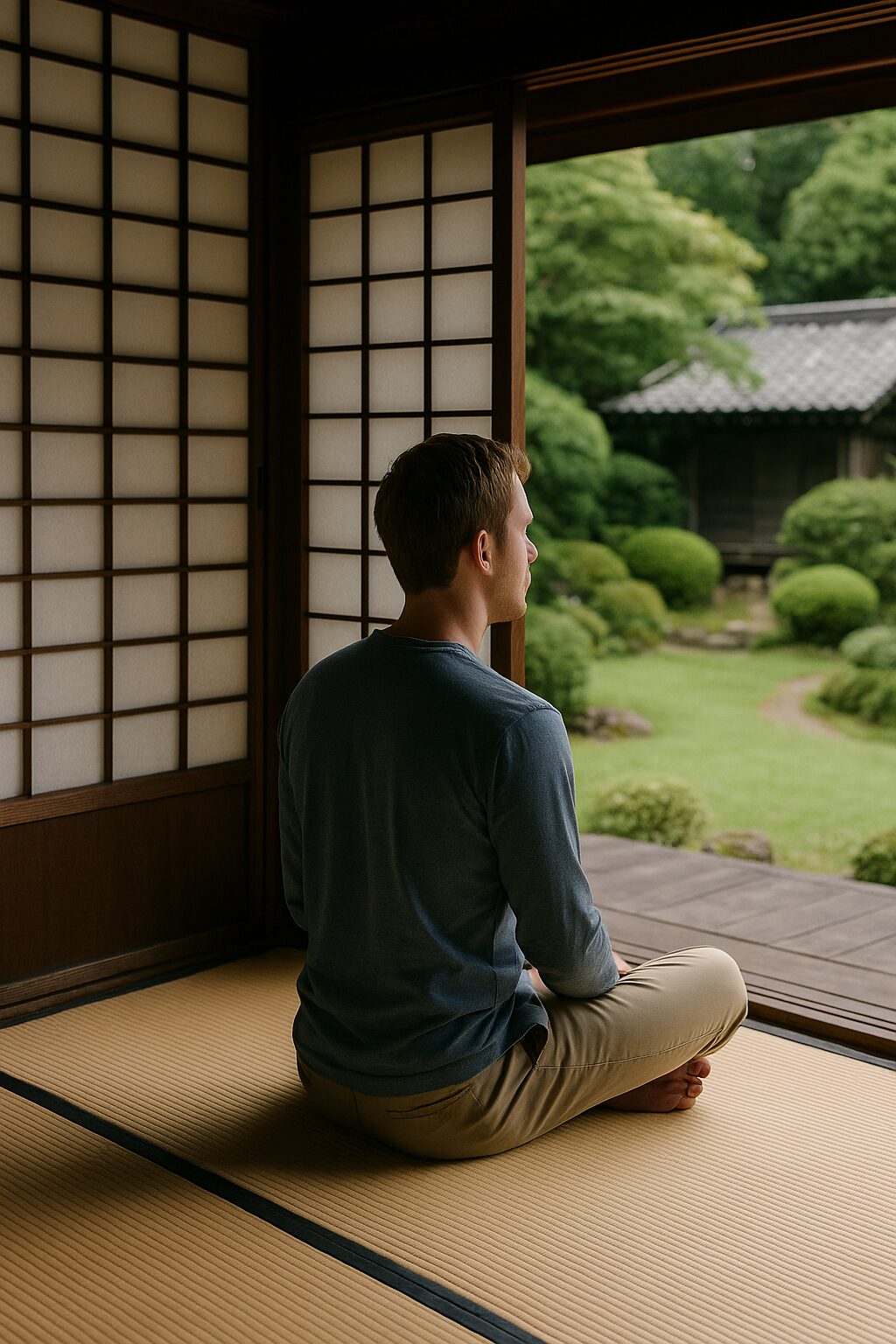
How to Choose the Right Japanese Meditation Retreat
When you choose, ask yourself not only “Where should I go?” but “What does my heart need right now?”
- Purpose: Rest, cultural learning, or spiritual depth?
- Duration: A few hours, or several days?
- Content: Zazen, yoga, calligraphy, or cuisine?
- Location: Near Tokyo, or in quiet nature?
- Atmosphere: Strict and silent, or warm and homelike?
The right retreat is the one that feels like a good fit for your present self.
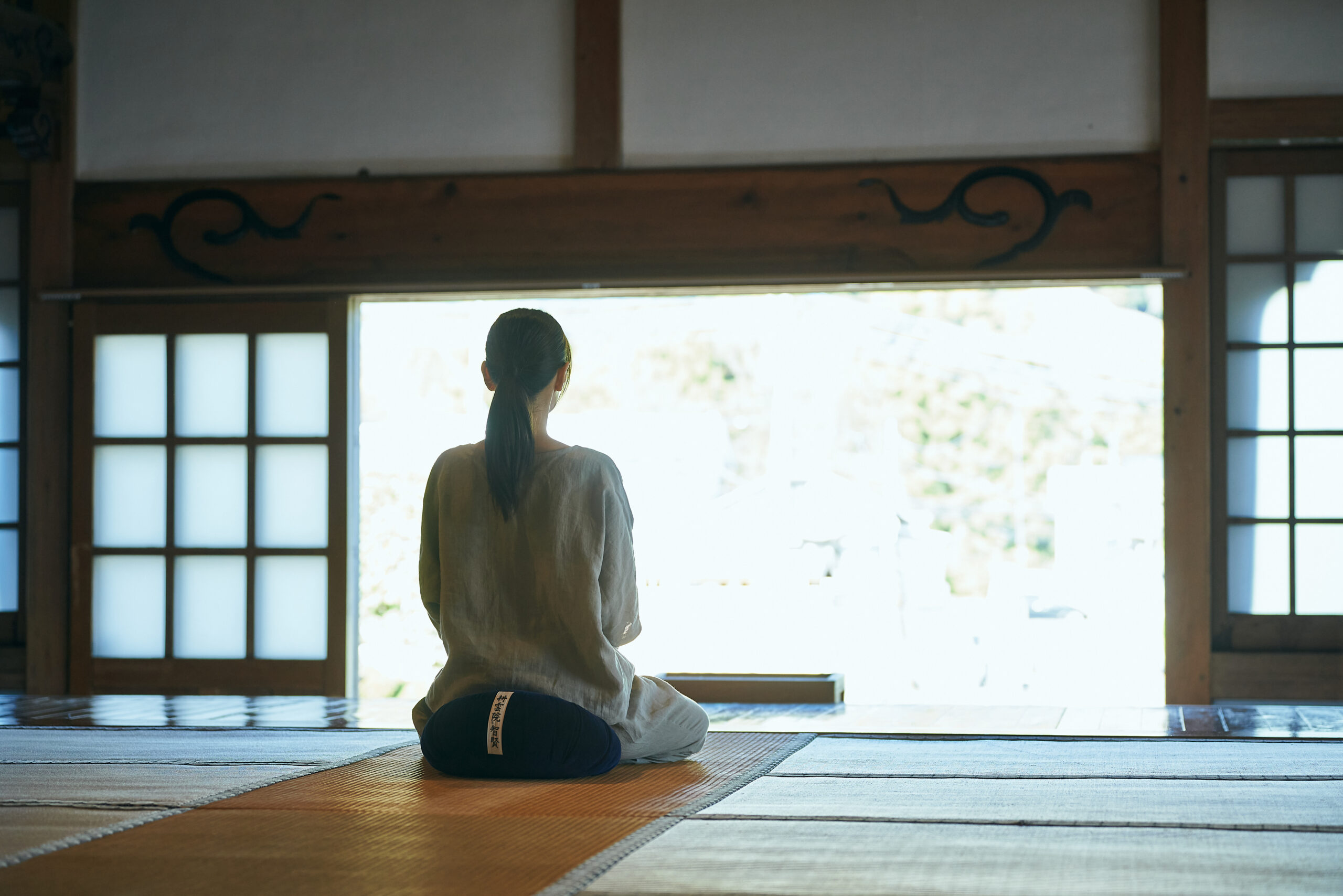
A Short Yet Deep Japanese Meditation Retreat — Koun-in Temple – Near Mt. Fuji
Just 90 minutes from Tokyo, in Tsuru City, Yamanashi, you will find Koun-in Temple – Near Mt. Fuji, a Soto Zen temple with more than 600 years of history.
Guided by Rev. Chiken Kawaguchi—trained at Eiheiji Monastery, featured in the Zen film TENZO (Cannes Film Festival), leader of a children’s cafeteria, and teacher of online zazen and yoga—the retreat combines tradition with a warm welcome.
At its heart is one belief: Zen is not far away. It is something anyone can touch in daily life.
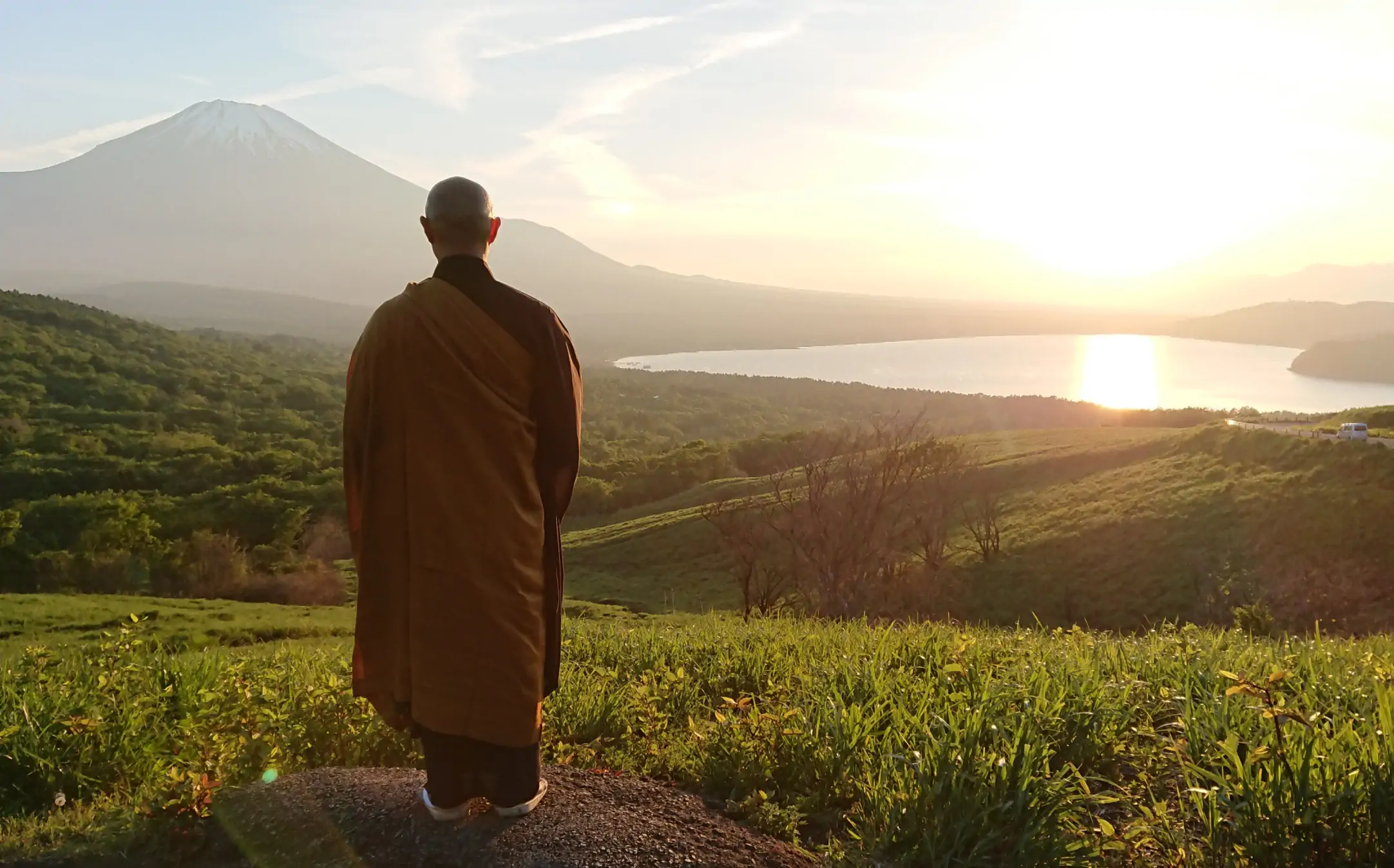
Zen You Can Carry Home
Our retreat begins with the fragrance of incense. Its quiet presence helps the mind settle. Through zazen, gentle yoga, and sutra copying, participants rediscover posture, breath, and the richness of the present moment. These are not just exercises, but small treasures you can carry into everyday life.
Shojin Cuisine and the “Three Hearts”
As tenzo (temple cook) at Eiheiji, I learned that preparing food is also a practice of mindfulness. At Koun-in, we share shojin ryori, guided by the “Three Hearts”:
- Kishin: a joyful heart
- Roshin: a caring heart
- Daishin: a vast and steady heart
Eating with awareness turns a simple meal into meditation, nurturing gratitude for life itself.
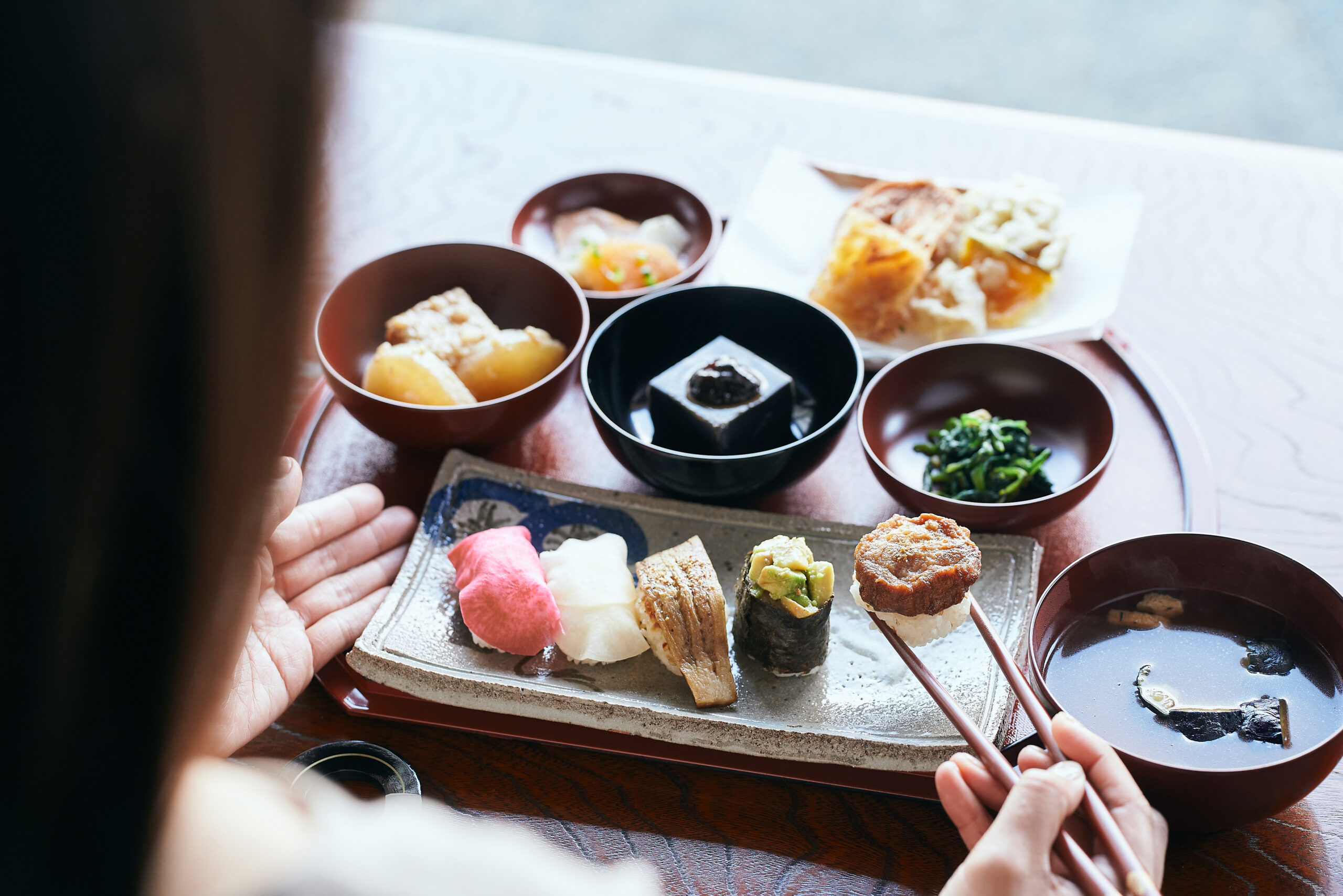
A Second Home for the Heart
Years of running a children’s cafeteria have shown me how temples can be places of warmth. At Koun-in, I want every visitor to feel as if they have found a second home—a place where it is safe to breathe, to rest, and to share.
Zen Beyond Borders
Through TENZO and encounters with people worldwide, I have seen that we all seek the same things: clarity, compassion, and meaning. Zen transcends borders. It is a universal way of living with peace.
Retreat Details — Japanese Meditation Retreat at Koun-in Temple
- Duration: 3–4 hours
- Location: Tsuru City, Yamanashi (near Mt. Fuji)
- Access: About 90 minutes from Tokyo
- Includes: Zazen, yoga, sutra copying, and optional shojin ryori
FAQ — Questions About the Retreat
Can I join alone?
Yes, single participants are warmly welcome.
How long is the retreat?
About 3–4 hours—easy to join during travel.
Is English guidance available?
Yes, simple English guidance is available.
Is shojin cuisine included?
It depends on the plan. With the meal option, you can taste mindful eating.
Is it suitable for beginners?
Absolutely. No experience is required—just openness to be present.
What should I bring?
Nothing special. Comfortable clothing is enough.
How do I book a Japanese meditation retreat?
Please reserve in advance via our contact form.
Voices from Visitors
—“The Japanese meditation retreat at Koun-in Temple was the highlight of my trip. Sitting quietly near Mt. Fuji, guided by a Zen priest, gave me peace I had never felt before.”
—“More than sightseeing—it felt like stepping into the living spirit of Japan. This retreat helped me connect with the culture in a deeper way.”
—“As a student interested in mindfulness, I found Japanese meditation here both welcoming and profound. The combination of zazen and temple food was unforgettable.”
—“We joined as a couple and found the retreat deeply calming. Sutra copying was a unique way to connect with Zen philosophy and Japanese traditions.”
—“Even as a senior traveler, I felt supported throughout. Practicing Japanese meditation through yoga and zazen gave me both calmness and renewed energy.”
—“As a yoga practitioner, I was inspired to experience Japanese meditation in its authentic Zen setting. The blend of movement and stillness was powerful.”
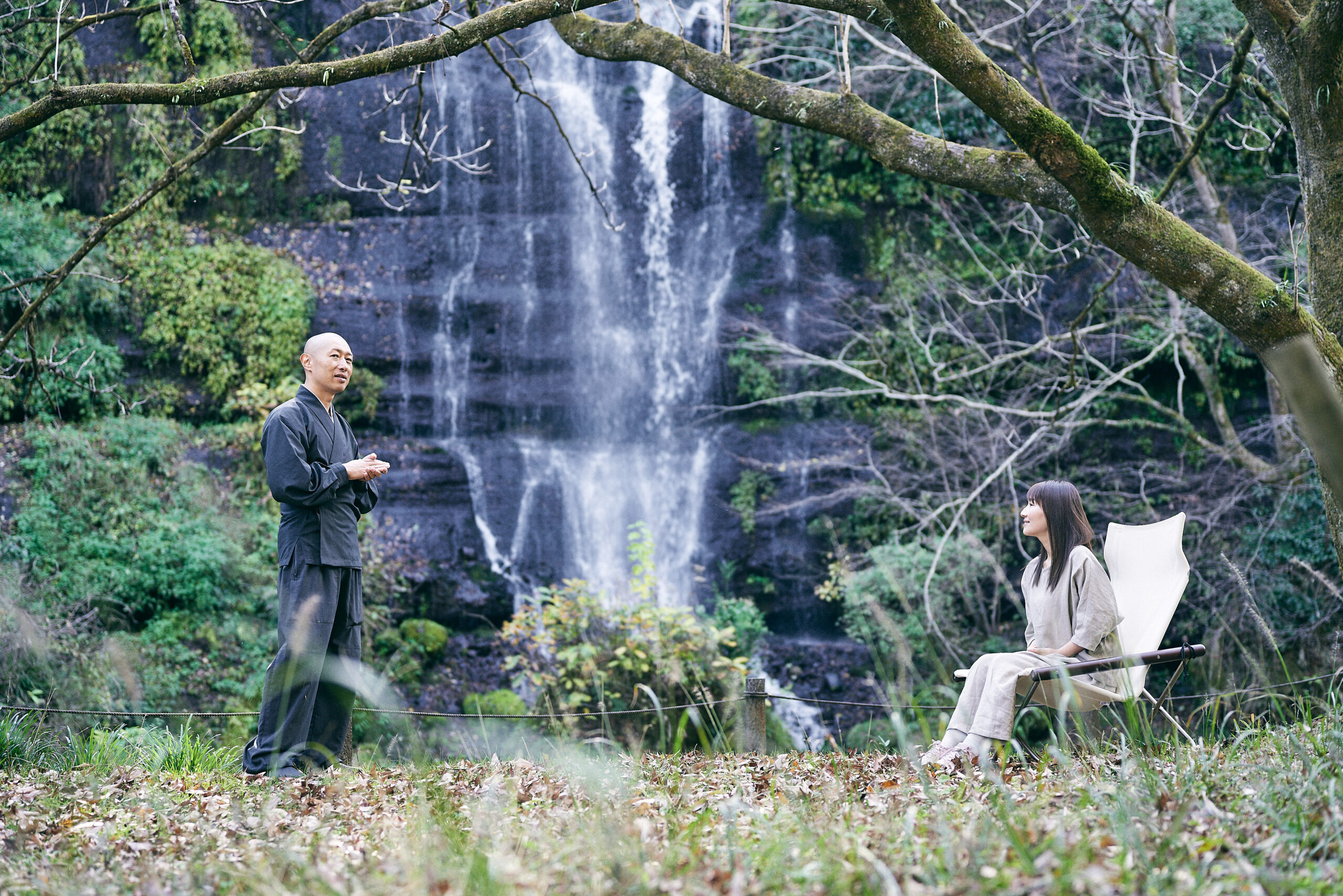
About Me – Rev. Chiken Kawaguchi
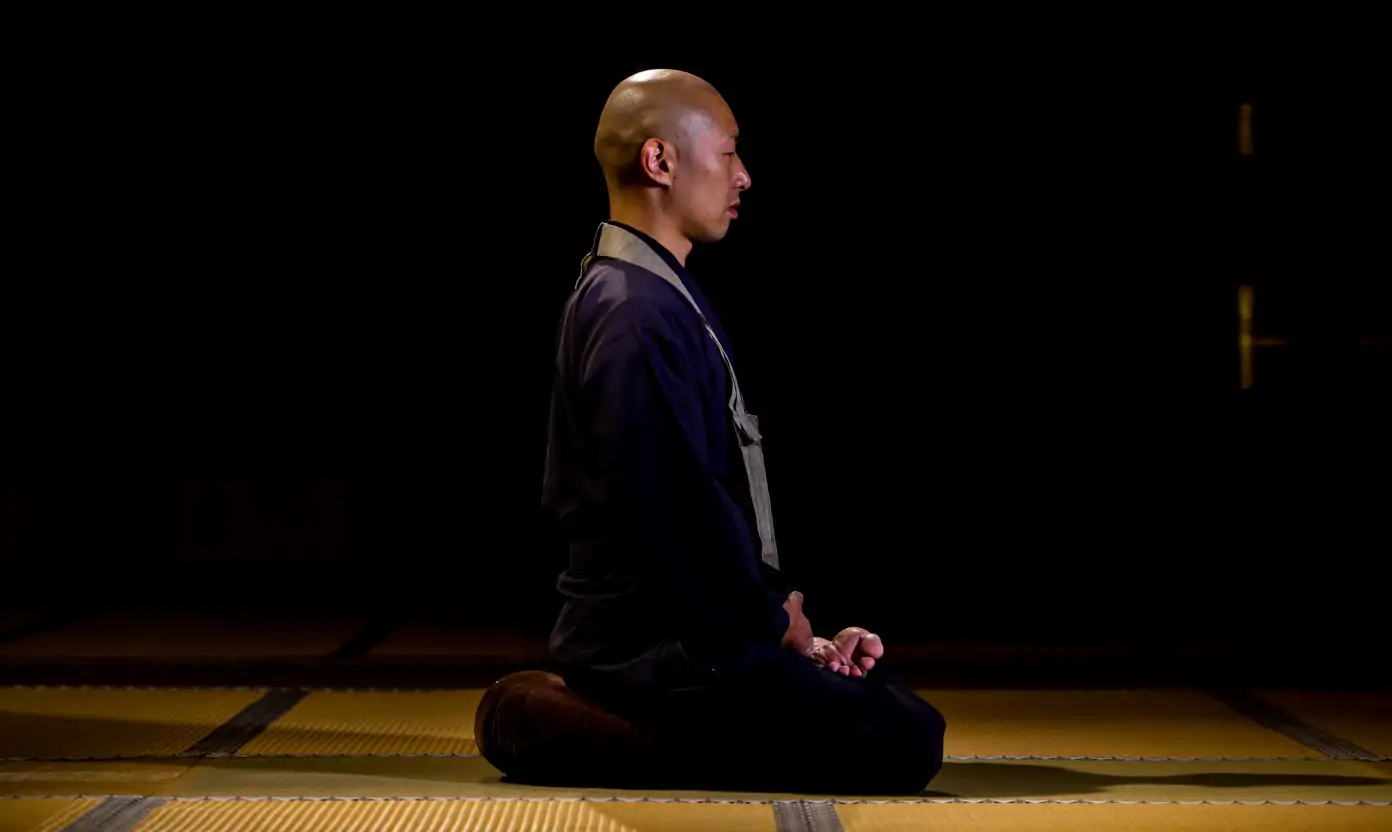
My name is Chiken Kawaguchi, Vice Head Priest of Koun-in Temple in Tsuru City, Yamanashi. I trained for four years at Eiheiji, the head temple of Soto Zen, where I learned the traditions of our lineage through daily practice.
Beyond temple life, I appeared in the Zen documentary TENZO, invited to Cannes and screened worldwide. That experience helped me share the spirit of Zen not only in temples but also through art and culture.
At Koun-in, I personally guide each visitor through zazen, sutra copying, yoga, and mindful eating. I believe Zen should never feel intimidating—it should feel open, welcoming, and alive in daily life. That is why I also engage in community activities such as children’s cafeterias, online zazen gatherings, and collaborations with yoga teachers and local groups.
It is my joy to welcome travelers from around the world to this temple near Mt. Fuji. Through meditation and simple practice, I hope to share an experience that is both profound and gentle, where spirituality, culture, and everyday life naturally come together.
- Profile last verified: Sep. 10, 2025
- Contact: Contact form
Experience Japanese meditation at Koun-in Temple near Mt. Fuji. Beginners welcome,English guidance available, just 90 minutes from Tokyo.

